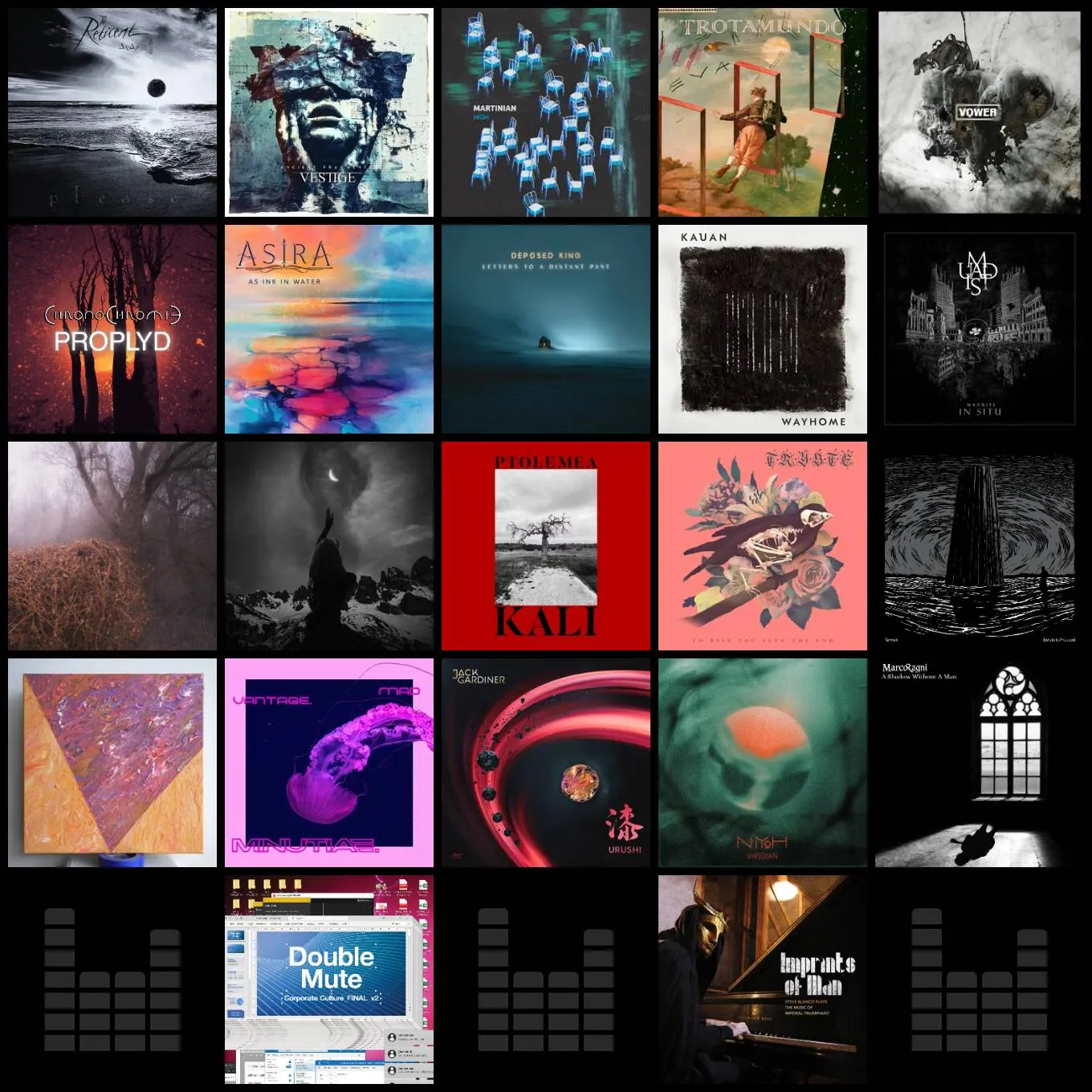
Anubis Gate in exclusive interview, talking about “Interference”, life & death, prog scene and more!
Matthias and Van sat down with Kim Olesen, Michael Bodin and Morten Gade Sørensen from Danish progressive metal legends Anubis Gate on a sunny Friday afternoon to talk about their 9th album “Interference” and it turned out to be a long conversation, at times funny or touching deep subjects like life, death and music education, with an overview of the band’s writing process and their thoughts on the Danish prog scene amongst much more!
Note: this interview touches the topic of suicide. Mental health is a crucial aspect of our lives, and sometimes individuals may find themselves struggling with overwhelming thoughts and feelings, including thoughts of suicide. If you or someone you know is experiencing these difficulties, help is available. Reach out to a trusted friend, family member, or mental health professional. Remember, you are not alone in your struggles, and there are compassionate and caring individuals who are ready to listen, support, and guide you towards the help you deserve. Please visit: thelifelinefoundation.org, iasp.info/crisis-centres-helplines
TPS: Your new album “Interference” was just released on June 2nd. Please tell us, why is it your best album?
All: (laugh)
Kim: Wow!
TPS:Yeah, an easy question for starters 😉
Michael:Well, I wrote the first song. (laughs)
Kim: Well, I don’t know if it is. I think every artist would say that their new album is the best album. And then, of course, it’s not always true. There’s something about this one. Normally when we have to finish a mix of an album it’s kind of sitting here in my throat and I have to take a year break from it and then reevaluate it.
It may sound a bit narcissistic, but I haven’t been able to put this album away yet. I’m kind of in love with it, and I don’t usually have that same feeling when we’ve done an album. To me, it’s a very special album, and it’s called “Interference” because there were so many things in my life that happened during the process of making it. I mean, Covid! There were so many things… We didn’t even have a record label! So there are so many things that we were like, “Maybe it’s never going to get released”.
In the end, that’s kind of how I feel about this album. So I can’t say it’s our best, that will be up to anyone else to judge that, but I think it’s a good album.
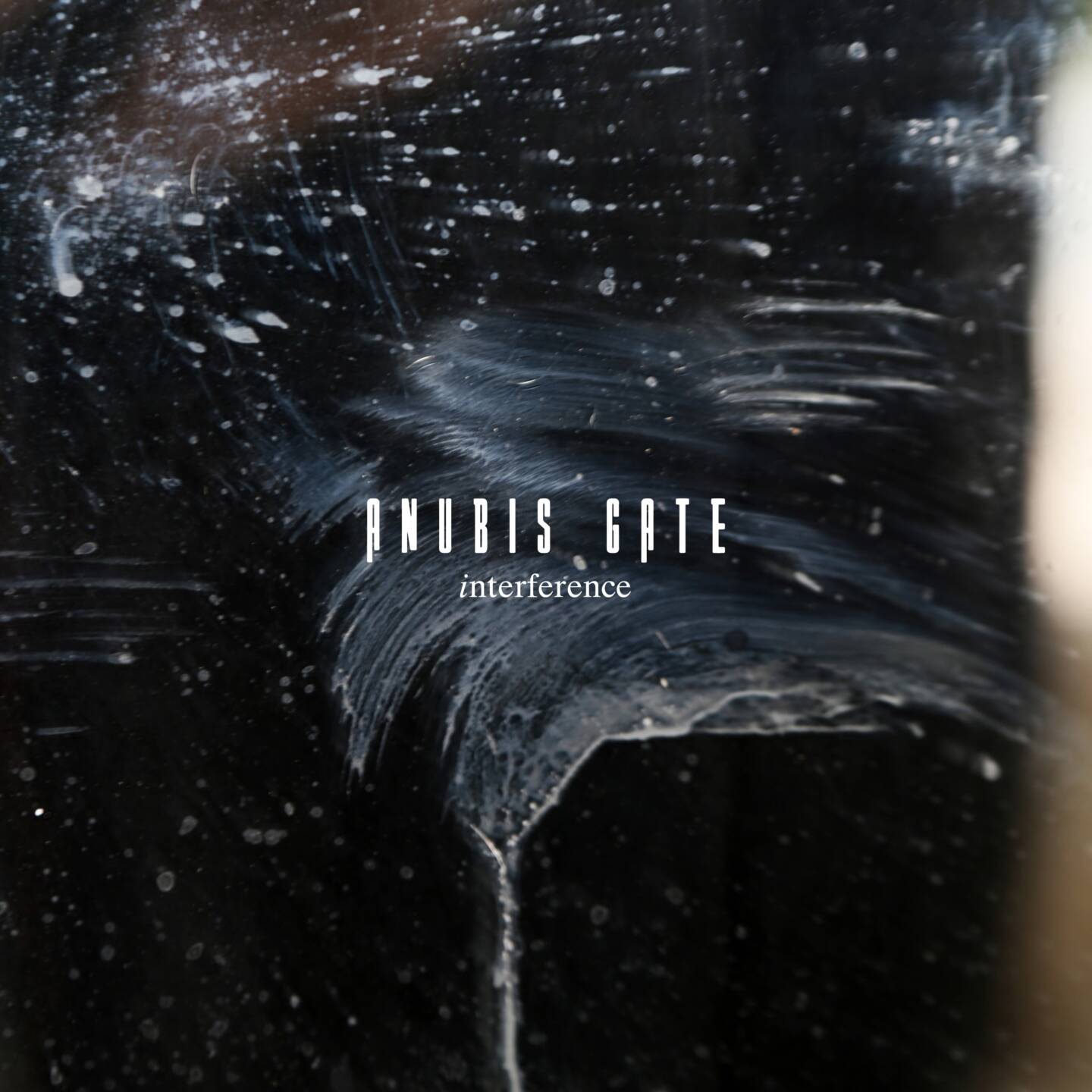
Michael: Absolutely. Absolutely. It is a good album!
Kim: And it has Michael’s song as the first! 100% rightly so, and we shouldn’t forget Henrik (Fevre, Bass), because….
Michael: Yeah, of course. He only sang. (laughs)
Kim: It would’ve been a great instrumental track. Okay, cut that out! (laughs).
It’s a very diverse album. Many of the other Anubis Gate albums are diverse too. But I think the diversity on the new album is a bit stronger. So we have some peaks that are really heavy and some stuff that is really soft and 80s pop (laughs).
I think one of the things that is also different about this album is that the process of writing it was the easiest one. It has never felt so easy before as with this album, at least for me. You?
Michael: We were really on a roll on this album.
Kim: I was spamming you every day, for a half a year. Like, “Oh, how about this?” A lot of it didn’t make it to the album. And that’s how it should be because in the end you have to weed out all the not so good stuff.
TPS: So you agree it’s the best one.
Kim: So basically, that’s the best one.
Morten: Just say yes. (laughs)
Kim: Yes. Actually, I think that’s where we should ask you. Is this the best one?. I mean, you’ve heard it too.
TPS: We were not really sure because we also liked your previous albums “Covered in Black” and “Covered in Colours”. They’re different. So it’s difficult to say which one is the best.
Michael: Exactly.
TPS: Depends on the mood of the day.
Every time we make a new album, with all the older ones it is kind of a Gesamtkunstwerk. They’re all kind of one album. Even stuff that goes back 20 years, it’s like it’s one body of art. – Kim Olesen
Michael: When you’ve heard the songs a lot of times, they will blend into the other albums, and then you can decide which one you actually liked better. So I always form my own opinion. I think it’s hard when a band I love makes a new album for which I have big expectations and I hear it and then I’m saying: “I like the other one better”. And then two years later, I like the other one very much. It happens.
Kim: Yeah. I think for me also. Every time we make a new album, with all the older ones it is kind of a Gesamtkunstwerk. They’re all kind of one album. Even stuff that goes back 20 years, it’s like it’s one body of art. And I don’t think about them like albums anymore. It’s always the new one, that one I think about as an album. But when we make the next one, this one will also be part of that body of art.
TPS: And you already mentioned that it was quite a long process for this album. Six years in the making. Was the writing process different for this one compared to the previous ones?
Kim: Well, actually no. The strange thing is that we started the “Covered in Colours” album and this one at the same time. There were two projects after “Covered in Black” and you know, I had an interview with you then, and I was kind of just wanting everyone to help me because I had been depressed and all that. But now I’m not, and after that album I needed to do something that was just fun.
And so I thought we’ll do a couple of cover songs and that’ll spark off the writing of a new album and then that became a huge project, it just happened. And it could have been the other way around. It could have been “Interference” that was out first before “Covered in Colours”. It was just that the cover songs were finished first for some reason. This album was done… when did we record the last note of it? One and a half years ago?
Morten: Yeah. The drums were from 2021.
Kim: Yeah, so much happened in the pipeline. And people have been asking, and then the production stalled, like everything else in the world after Covid. You know, everything got stuck in the pipeline. So, that’s the reason “Covered in Colours” came out just when Covid started, and then we couldn’t get this album finished. It was almost finished, except for my parts. (laughs)
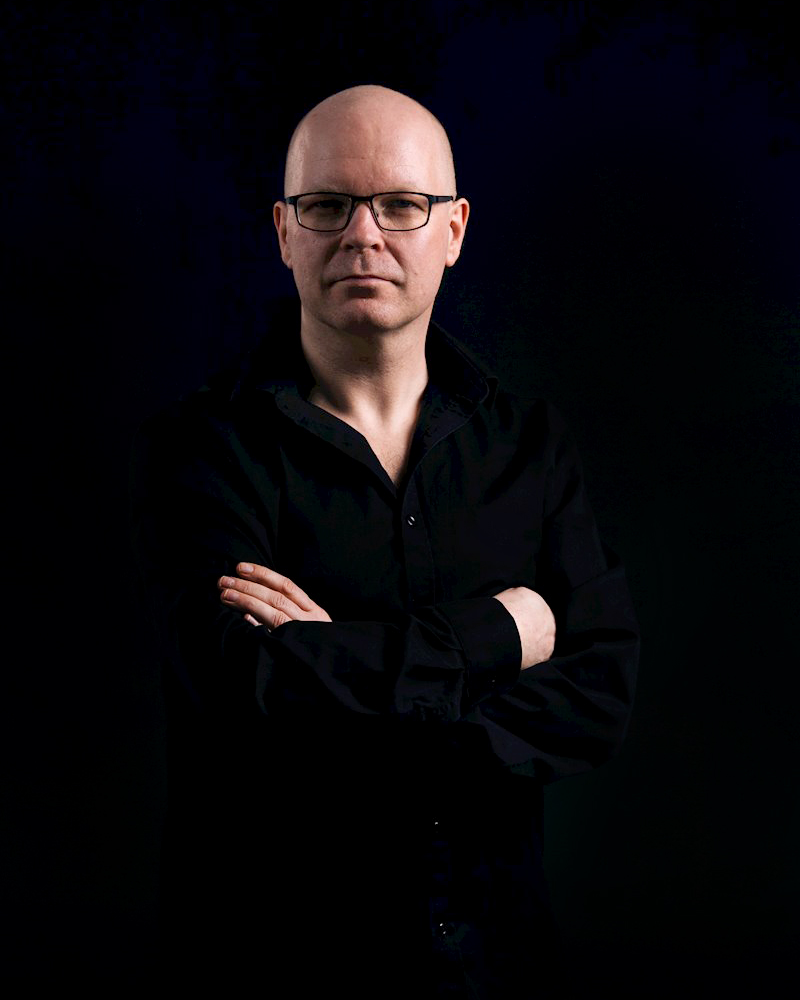
Kim Olesen (Guitars, Keyboards, Producer)
TPS: And also you changed your record label.
Kim: Yes. Lance (King) was scaling down Nightmare Records. I called him and said, I think we’re gonna go with another label. And he was super cool and helped us transition the digital rights of the albums. Some of them were out of license, but I wanted to keep my records in business. “Covered in Black” and “Covered in Colours” were still under his license. When I called him up, he said “I think you should have them, I’ll give you the digital rights, so you can get on with it”. So it was very nice, trouble free.
Michael’s other band Third Eye got a record deal with the Dutch label No Dust Records. It impressed me that they put a lot of work into promotion. Henk van Delden, the owner, is a real music enthusiast. I think we could have been on a bigger label, but would we rather be a bottom of the row band on a big label or have someone that really is an enthusiast and be top of the row artist on this label? We had a couple of band meetings, I don’t think any of us are in this to become rockstars…
Michael: We already are.
Kim: Exactly. (laughs) No!
Michael: We were lucky, too. One of the owners of No Dust Records contacted me about my other band, Third Eye, and asked me to release the new album. And in that process, he asked about Anubis Gate, what is going on with the band and the label? I said not so much at the moment. So, he offered us a deal. I talked with the guys, I said he is a very cool guy, he’s enthusiastic and a cool person. I really like Henk, he’s an amazing guy.
We are not doing this for the money, and he’s not doing it for the money either. He’s doing it because he loves it, and we are doing it because we love it. So that’s a good partnership. I think that’s cool.
I just write something that sucks, and you know, because you have to get all the suckiness out of the system, and then you write something good. – Kim Olesen
Kim: And we had promised people that the album would be out in 2023. Then I was thinking, “Oh, will it be out?” because it had been finished for one and a half years except for the final mix. But because, you know, things are not really finished until you need to finish them (laughs), and suddenly it was when we finally got things moving, at the end it was not like we had enough time. It was a rushed release. So everybody got really busy.
But, it’s also… I’m contradicting myself now because… how many minutes of music do we have in demo form for the next album?
Michael: Around 30 minutes?
Kim: Yeah, something like that. It could be a whole album, but we just know that it will change a whole lot until it gets released. But it’s hard for me to concentrate on a new project before the old project is out of the way, until I can really wrap it up.
TPS: You have one song, the title song, that deals precisely with those interferences in the creative process and interrupting your flow. Do you have some kind of coping mechanism for these blockages as a band or individually when you’re writing and making music?
Kim: As my coping mechanism, I just write something that sucks, and you know, because you have to get all the suckiness out of the system, and then you write something good. I may be wrong, but as I remember our creative process, we have all kinds of grand things that we could do. Then I have a piece that does this. That’s a strange interval. And I’ll write kind of 20 minutes of that and then everybody will just be saying: “Hmm yeah”. And I can, I’m not saying it loud, but I can feel it. Then I get that out of the way and start writing something useful. So that’s my coping mechanism. I can’t speak of yours (to Michael and Morten), but I just allow myself to suck.
Michael: Yeah. I don’t suck that much.
Kim: I agree. (laughs)
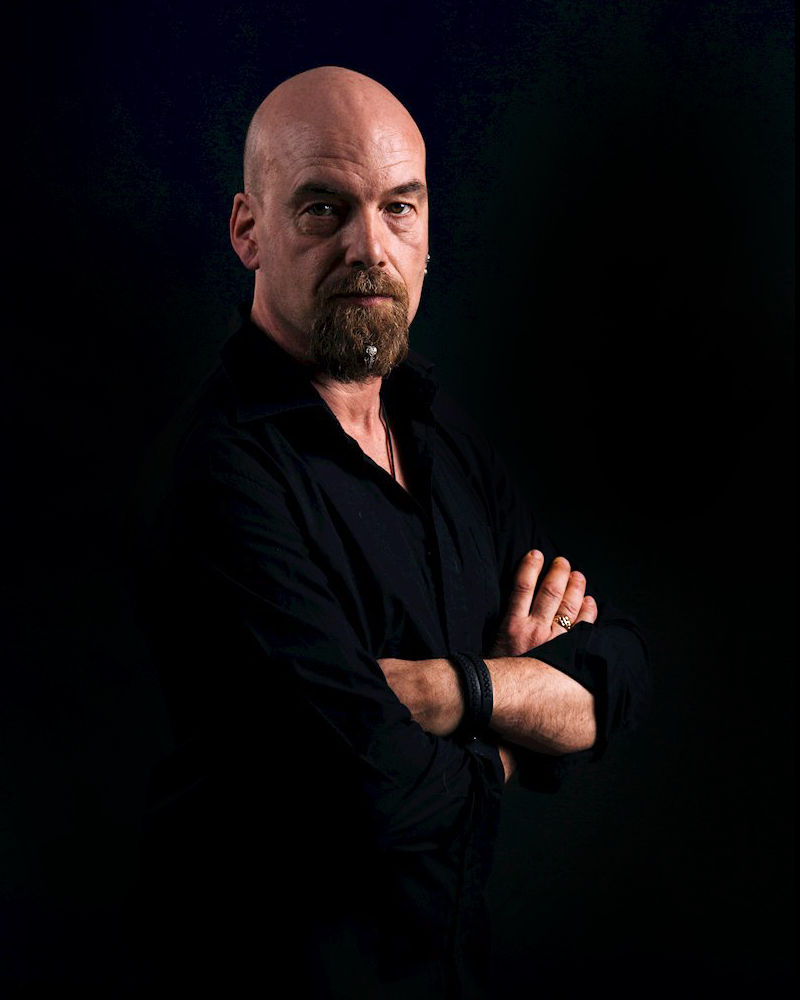
Michael Bodin (Guitars)
Michael: Well, we write in different ways. Because some songs we make on our own. On this album, one song I made on my own. And for others I can make some pieces of music and I send them to Kim, and he works with them.
And often I like the process in that way, because then I don’t have to finish it. I can make ideas and Kim can work on them, especially on the “Covered in Black” album. We did a lot of that. Not so much on this album. I made some pieces and Kim worked them until we got a great track. Some of the songs I did on that album were not as I thought they should be, but Kim thought, yeah, this is great. We keep it that way. So on this album I made the opening song, and I made one of the other songs, and for that song Kim thought it was a little too much shifting in moods. We needed a heavier song, so Kim made another chorus, and it went out to be…
Kim: That’s ‘Equations’. Is that right? Yeah, I mean, I even got to shout at a microphone!
Michael: Yeah, you did! It turned out to be a great metal song. It was not so in its first layout, it was more moving through more different moods, even a little bit more poppy, 80s pop…
Morten: Yeah, 80s! (laughing teasing Michael)
Kim: I knew I did it. (laughs)
Michael: I admit it, I did like it. But, I think we could have used that better in another song.
Kim: I think that’s what happens when we are writing, it was one of the last songs that we actually worked on for the album. And when we come that late in the process, I’m beginning to see the whole album as one song. So I was kind of thinking: “What does this album need? Yeah. It needs screaming vocals for the first time in our lives”. And the only chance we had for this was in that song.
Morten: Maybe you also got some inspiration from the “Covered in Colours” album.
Kim: I did. Because I ended up singing on it. Maybe that was why I did that shouting. I didn’t know that I could do it.
Michael: Actually. You could, and it sounds good!
Kim: Really?
Michael: So now we have to keep you a little bit from not screaming all over the place. (laughs)
Kim: Actually ‘Emergence’, Michael’s first song, had a section where I had growling vocals too. I know it sounds strange, but in the end, it was kind of so powerful that it ruined the next song on the album, ruined the flow. Then you expect the whole album to be like that if you do it in the first song.
Michael: But it sounded good.
Kim: It did, actually.
Michael: You can make a single.
Kim: Yeah. A single version.
Michael: We’re keeping this. (laughs)
https://www.youtube.com/watch?v=h7YE0XD43ZU
TPS: Any chance to do it live?
Kim: I don’t think I can do it live because I have to work up for it, the technique. The shouting vocals, you know, are actually like a game. Eight vocals at the same time. That’s why I can make it sound so aggressive. But I can’t do it live.
But another fun thing about the writing process, the song ‘World of Clay’ on this album, there’s not a single note left of the original song. That’s not uncommon for us. Sometimes it will morph into something completely different and there’s nothing left of the original.
I think we’re lucky to have a band where there are really no holy cows. Of course, you know, sometimes we’ll have differences, “Are you sure you want to erase that?” And of course we will have, because it’s a creative process.
That’s good. I think it’s because we are grownups, and we are not young people anymore. Actually, with some of the processes, some bands will break up over stuff like that and some bands will just say: “Wow, okay, maybe you’re right, it should go away”.
I think we got the secret sauce with this. Not that I love everything we did. And I’m not discerning everything, but personally, we got the secret sauce with this line-up. – Kim Olesen
TPS: You can come to an agreement in the process because you understand what the other person means by changing the song like that.
Kim: It’s kind of strange we don’t have more fights. I don’t quite understand why, what’s wrong? What’s wrong with this band? Most boring band in the world? (laughs)
To be honest, for the first five albums of the band, the fights happened. And then we kind of grew up, we also changed. We haven’t changed the lineup for the last four albums, and I don’t want to. By now, if any lineup changes were to happen, it’s just the end of the band. Because this is the lineup I want. I can’t imagine anything else.
Morten: Awwww!
Kim: I think people have left the band because of me in the early days, and that’s okay. Because it changed from being someone else’s vision. So my vision during the first years was not really my vision, you know what I mean? I became the producer of the band during the first five albums. And that understandably created rifts. But with this lineup, we don’t have those scars in the band. I think that’s good.
TPS: You’ve been around 20 years. So you have 10 years with different line-up changes and 10 years with this current line-up, the longest you’ve been together as a band. What’s the secret?
Kim: I think we got the secret sauce with this. Not that I love everything we did. And I’m not discerning everything, but personally, we got the secret sauce with this line-up.
TPS: Moving on, you have quite a wide range of topics on the album, songs about space travel, is that right? Cold War. Psychological Problems. Strong Psychological Problems. So how did you come up with so many different topics, do they all make one whole concept or are they individual songs?
Kim: It’s not a concept album in any way, but if there is any concept, some of the songs deal with psychological issues. I wish Henrik was here now because he wrote all the lyrics. But he authorized me to talk about this. In the middle of it all, an old teenage friend, childhood friends of Henrik, Jesper (M. Jensen), who was also a founder member of the band, committed suicide. And, some lyrics were not quite finished by then, to which Henrik made some changes because he was hugely affected. Henrik and Jesper knew each other since childhood, they were in a band already then.
And Henrik and Jesper saw each other often. So it left a real hole in Henrik’s life. The song ‘Interference’ in a way deals with this as well, though it has more layers, because it is as well a song about the creative process which is kind of a major subject on the album.
Also, when Henrik sings discordant harmonies, it is because that was what Jesper was hearing. He said he was able to hear fully finished music, but it was difficult for him to get it down on tape. The translation of his vision was always difficult for him.
So, ‘Interference’ is a song about the creative process. Everyone who is creative will listen to that song and see themselves in it. But on a deeper level, it’s very much a song about Jesper’s passing. Struggling with the creative process after what happened.
Also the last song ‘Absence’, is totally about Jesper, it also started with completely different lyrics. It affected the album, it affected us. For Henrik it was very difficult, he was deeply affected.
I hadn’t seen Jesper for a while, not because I didn’t want to, because we were often writing together, but I’m kind of a guy who is not easy to get up and visit others, it just never happened. And I regret that deeply now because I can’t help thinking, what if I had? What if I could have made him feel better? Maybe he felt unloved or something. That’s something you always wonder when people take their own lives. Could I have made a difference? And probably I couldn’t, but the little doubt will always nag in the people around people who commit suicide.
I think there are probably more songs. The song ‘Ignorance Is Bliss’ might also be about it. It could also be a song about when you know someone who has psychological problems. It’s sometimes so hard to deal with for people around them that they also just lift their hand and say, “I don’t know how to help you. How can I help you?” And in that process, people are actually pulling away from the person who has problems. And so ignorance is bliss. Or even more, people shield themselves: “Please don’t tell me about it because I can’t contain it”. It’s also kind of a way to protect yourself.
And then of course there are the songs that weren’t about those kinds of things. The song ‘Dissonance Consonance’ is typical for Henrik’s lyrics writing. I thought that was about people from the Third World wanting a better life. But actually it’s a love story. I said to him, ”Oh, that’s a cool song that you wrote, a little political song for a change”. And he said: “What? That’s a love song!” (laughs)
I think it’s cool that people can read their own things into the songs. It’s kind of interesting. So that’s what Henrik authorized me to say. (laughs)
TPS: Well, that was good enough!
Kim: You talk too much, Kim.
Michael: No, you don’t. (laughs)
TPS: Musically, you already talked about the change from “Covered in Black” towards “Covered in Colours” and the parallel development of the latest two albums. But how did turning from that very dark island to a flowery album influence the production of “Interference”, which is sort of a blend of the 2 previous ones?
Kim: I don’t know. “Covered in Black”, I love it because it’s a dark album, but it is a dark album and I just couldn’t have more of that at that point in my life.
I have a thing that I say to myself always, which is “trust the process”. So I was kind of “Okay. If I’m feeling this is what needs to be done, then it needs to be done, and there is no way around it”. I just wanted to have fun, I pressed all the others into it (laughs). – Kim Olesen
I was out of my depression, and I was feeling good. So what can be the least dark thing to do? That would be playing other things. I know ‘Fade to Gray’ (Visage, 1980) is kind of a dark song, but doing crazy covers of ‘Back in Black’ (AC/DC, 1980) and stuff like that, that would be totally insane.
With that album… I have a thing that I say to myself always, which is “trust the process”. So I was kind of “Okay. If I’m feeling this is what needs to be done, then it needs to be done, and there is no way around it”. I just wanted to have fun, I pressed all the others into it (laughs).
Michael: You did!
Kim: I said, “You have to go along with this”. I can totally understand if you felt like, “What just happened? We’ve just made a whole album of covers. And how did that happen?”
Michael: Yes, absolutely surprised!
Kim: And it was not like you were that involved. I was just like “Oh, wow. 14 cover songs!”
Michael: Yeah. But I think you have a point, that the new album has some blending in from the “Covered in Colours”, because when you dig deep into some other musical stuff, you get inspired. And I think you can hear on the new album that there are some influences from the “Covered in Colors” album now and then.
I can hear influences from some of the things we did. And then that’s another approach to Anubis Gate’s songs. We could make the same album 10 times, but why? – Michael Bodin
TPS: From both “Covered…” albums I would say, because there are some very heavy, dark parts and then you have other more colourful parts, so to say. It’s very well blended.
Michael: Yeah, in that way, I think it was good for us to make both extremes. I teach music too, and I play a lot of cover songs with my students. That keeps me inspired from a lot of the songs they’re playing. Because every time they take up a new song, I think: “That was a funny thing they did there, I can use that later”. Copy and paste (laughs). So you, as a musician playing and listening, you get inspired, and you can take what you think and make it into your own thing. No musician can say “I made this, this album or this song it’s totally unique”. And if it is, I don’t think anybody would like it.
But you can always say there are parallels from this and that. In that way, I think it was a good decision to make “Covered in Colours”, because I can hear a lot of the stuff, not all, but I can hear influences from some of the things we did. And then that’s another approach to Anubis Gate’s songs. We could make the same album 10 times, but why?
Kim: That would be absolutely boring. And as you say, I’m just thinking about the song, ‘Number Stations’ wouldn’t have existed if we hadn’t done that crazy end of ‘Aggressive Perfector’ (Slayer, 1984). Because that’s where that was born out of. And it is one of my favourites. “Covered in Colours” had heavy moments, but it really wasn’t a heavy metal album. One of my favorite memories of that album is hearing Morten play something other than heavy metal (laughs), because he was kind of… I hope you take this in a good way, but he was outside of himself, another side of Morten’s playing that I just didn’t know.
You did something about all the ghost notes stuff, and I really hadn’t noticed that before because when you have four walls of Marshall stack, you don’t hear that. But actually that translated into here, I mean, how much of that stuff there is on ‘Emergence’? There’s a lot more of it than we usually have. Even small things like that, one project helps the other.
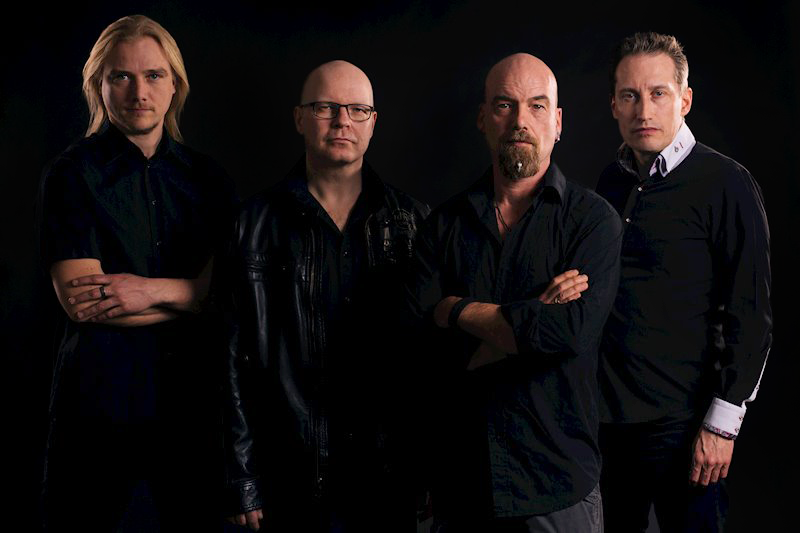
Morten Gade Sørensen, Kim Olesen, Michael Bodin, Henrik Fevre – Anubis Gate
TPS: And will you play it live? Like a small tour or some single shows, or a release show, anything like that?
Morten: We actually brought the instruments. (laughs)
Kim: Yeah, instrumental version, and my shouting part. (laughs)
We are not ruling it out. I think the issue is when you are our average age and you’re not living off of music and you have families and full-time jobs… I mean, I have more than a full-time job. I play gigs, I’m going to do a cover gig tomorrow. I also soon will have four grandkids. It’s not as much the process of playing it, actually. It’s more everything that goes into being able to play.
Morten: Yeah, getting ready to play.
Kim: One of the amazing abilities Morten has is to remember so much music, and he said that it’s insane to remember all the drum parts, but that’s sadly not one of the powers that Michael and I have.
Michael: No, absolutely not.
We do play live, but is it safe to say that we are primarily a studio band. The creative process is always more enticing for me. That’s what pulls me. – Kim Olesen
Kim: So for us, first, it actually means learning. Not like it was something that we’d never played before, but it actually means sitting down and spending months learning the songs. I mean, if Copenhell comes and asks us, we are not going to turn it down (laughs). But it is a lot of work, and for me it’s double work because it’s me who prepares all. We don’t have a keyboard player and even if we had a keyboard player, we would have to have 10. (laughs)
It’s funny, because even if there are lots of guitars, we can do the guitar stuff with the two of us, without being too ashamed. But the keyboard stuff, I mean ‘Number Stations’ has 41 keyboard tracks and that it’s not unusual. ‘Equations’ maybe had 10 keyboard tracks, and that’s the one that had the least keyboards on the album. We would have to have five keyboard players. Or we could have one who’s faking it. (laughs)
But seriously, there is so much to set up to work well and our live system is also showing a bit of age. Even troubleshooting that… It can be done. But, I would need three full working weeks for my part and working day and night, but, I’m not going to do it for one gig. But if someone says we have five gigs, that’s another story. Because with the limits that we have at the moment as human beings with families and jobs…. So I’m left with a choice: “do I work on our live setup or do we start recording and writing the next album?”
We do play live, but is it safe to say that we are primarily a studio band. The creative process is always more enticing for me. That’s what pulls me. We’re not ruling it out because when we did “Covered in Black”, we actually also were kind of having this discussion, weren’t we?
And then we suddenly had the shortest tour ever, which was two gigs (Aalborg and Odense), and we actually ended up playing live despite kind of “no, we are not gonna do that”. (laughs)
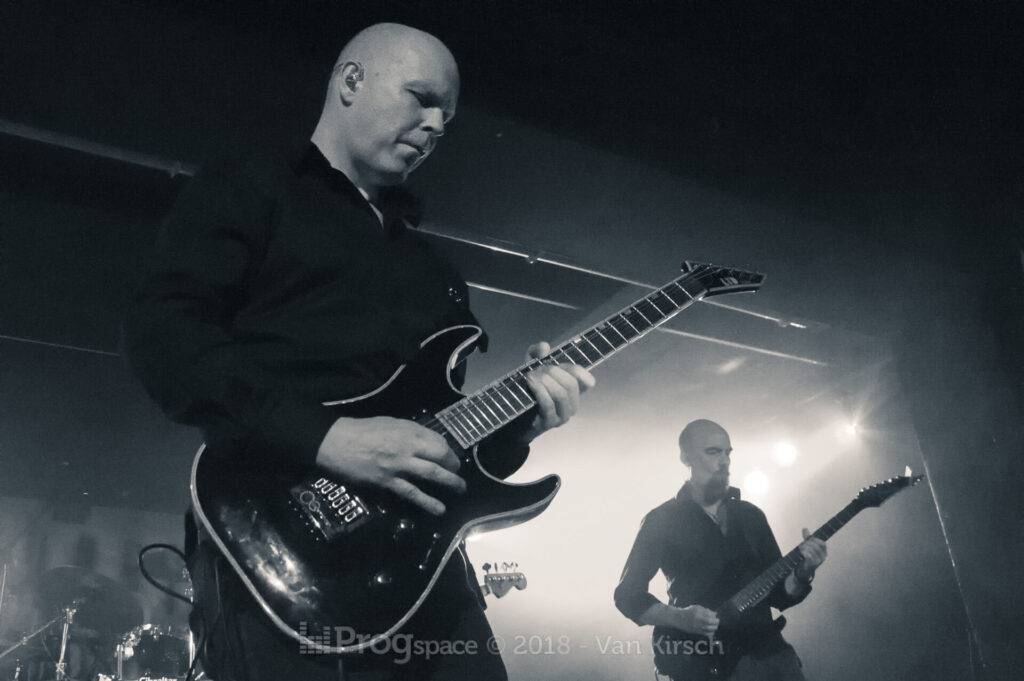
Michael: Give us five good gigs in a row and we’ll do it. Yes!
Kim: And Copenhell! (laughs)
Michael: Yeah!
Morten: Yeah!
TPS: A question maybe more for Morten and Michael, because the two of you have two releases this year with your bands. But for you, Morten it’s a bit more urgent because you have to album releases head to head basically… Pyramaze’s “Bloodlines“ and Anubis Gate’s “Interference”. Is there an issue for you to get that under one blanket?
Morten: Well, It’s actually funny because the process to release and write an album is happening way before the release. So you can say that this album (“Interference”) was made years ago. Pyramaze was made last year. So there’s no conflict in that part of getting the time to do it. But then it requires some time to practice and go to the studio and stuff like that. But it always works out somehow. But I don’t know why these two releases just happened almost at the same time. I think it’s a coincidence. Release plans from the labels and such. Ours was out the 2nd of June and Pyramaze is out the 23rd of June.
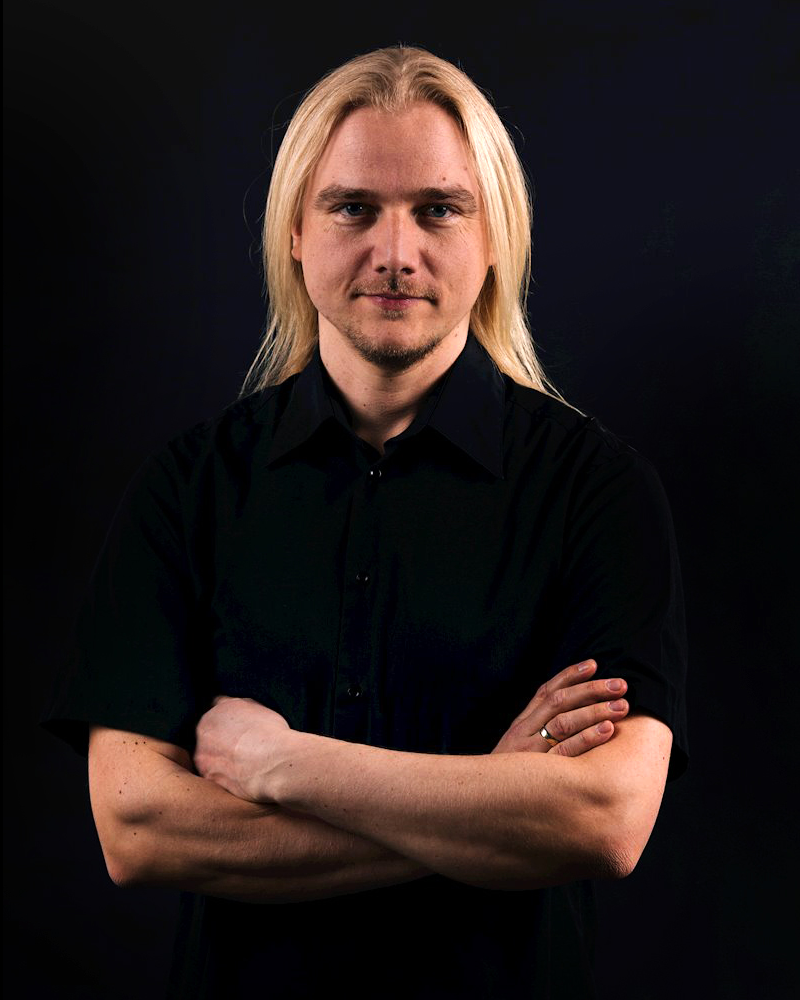
Morten Gade Sørensen (Drums)
Michael: On AFM records!
Morten: Yeah!
TPS: So you actually have time to enjoy the releases.
Morten: I have. Absolutely.
Kim: And we’re not in a competition. On the contrary, what’s good for Pyramaze and Third Eye is good for Anubis Gate and the other way around.
Michael: Exactly.
Kim: And Henrik also released a solo album. How cool is it that all of this music is coming out of all of us. I think it’s fantastic.
Morten: Also on another note, Henrik is also writing songs for Pyramaze. He writes the top lines and melodies and some of the lyrics. So it’s all like a small family.
Michael: Exactly.
TPS: Without mentioning (producer and guitar player in Pyramaze) Jacob Hansen of course, also involved in almost everything.
Kim: Yeh he’s always involved.
Michael: I don’t know how he’s not more involved.
And I ended up saying we should help each other. We are a small minority in the music business. Of course we should help each other. It’s not a competition. – Michael Bodin
Kim: We keep him out (laughs). But there’s also Nicklas Sonne who just did a substitute gig with Pyramaze.
Michael: And he produced the Third Eye album and did guitar solo parts… So yeah it is one big, big family.
I talked to another guy the other day, Odin Madsen, who plays in another band in Denmark, Theory, where Nicklas Sonne is the singer too, and he was asking me about record deals. And I ended up saying we should help each other. We are a small minority in the music business. Of course we should help each other. It’s not a competition. I admire a guy like Nick, he’s also a great guitar player and a great guy and Odin, he’s an amazing guitar player too. So my skills are not like those two guys, but I can do something else.
Kim: I’m kind of like that too, personally, I’m not a very good player, I know that sounds crazy. I’m really not a technically gifted player. I think you’re better technically than me, but I have my imagination.
Michael: Yeah.
Kim: I think that’s why we didn’t turn into a Dream Theater clone, it’s because we wouldn’t be able to, except for Morten! To play like that would be so beyond me, there’s no way I could play that and try to remember all those notes. I mean, that’s one of the things I like, keeping it relatively simple.
Michael: “Relatively” (laughs). There is some pretty hard rhythmic stuff.
Kim: That’s because I don’t have to play them! (laughs).
TPS: Let’s talk a little more about the Danish Prog scene, which seems to be doing quite well in the latest years, for example Vola making it quite big in the scene lately.
Kim: I didn’t know they were Danish!
Morten: They are!
Michael: Vola, yeah!
A few years ago, I was wondering how come we don’t have more talented musicians playing rock and metal in Denmark, and suddenly I realized that there are very talented musicians and bands. (…) I was really amazed to realize that the scene is so much bigger than I thought. And the skills of the musicians are extremely high. – Michael Bodin
TPS: Feather Mountain is also a name that pops up every now and then and also Danish Prog almost made it to Eurovision with Nicklas Sonne, who you already mentioned. Is it fair to say that it helps the whole scene when bands are getting more known, and you all are getting more involved with each other and helping establish yourselves better?
Michael: Right, It’s funny because a few years ago, I was wondering how come we don’t have more talented musicians playing rock and metal in Denmark, and suddenly I realized that there are very talented musicians and bands. It’s not only Theory and Nicklas Sonne’s Defecto, there are many more very talented musicians. I was really amazed to realize that the scene is so much bigger than I thought. And the skills of the musicians are extremely high. It makes me very happy.
TPS: I remember Kim, the last time we met, that we were also talking about this, and you were saying somehow that it seems to be that the Danish audience loves more pure heavy metal.
Kim: Yeah. I mean, I’ve been saying for years that if you sing clean in Denmark, you can forget about it – just take that handsome quote! (laughs)
Morten: Actually, this festival we just played with Pyramaze a few weeks ago (Nordic Noise), it was a melodic rock festival. So something is happening.
Kim: Yeah, things are changing. I’m seeing lately regular prog rock, Jethro Tull and bands like that, are becoming fashionable. How on the earth did that happen? Is it suddenly that younger people have discovered they have more than one second of attention span, or something? (laughs).
It’s so great. It’s great for music that maybe there is a reaction to music being over manufactured. That’s not a problem in heavy metal, I think. But in pop music we have that a lot, there is so much music that, it sounds a bit like, you know, “We put together those people and commissioned them to do an album”. Instead of people creating music out of a necessity to create art. I think maybe a section of the music buying audience is kind of tired of that, and they just want people who are actually artistic and authentic.
So I’ve been to quite a few conferences, and one of the things all the people who have researched on this topic say is that what young people crave in these times is authenticity. – Kim Olesen
I teach young aspiring musicians, and one of the things that we dabble with in the world of music schools is what makes the young people tick. Because that’s our way of existence, if they don’t want to learn an instrument, we have no job. So I’ve been to quite a few conferences, and one of the things all the people who have researched on this topic say is that what young people crave in these times is authenticity.
So I think that’s part of it. I don’t know if any young people even listen to Anubis Gate, but it’s not about us. It’s about young people who actually want to play an instrument and go down to a record store and find an album and buy it. I mean, how weird is that? How great. But how weird is that? I mean, there’s something in it that they see as an authentic, true art. Why is it that people still love The Beatles? It’s authentic. You know it when you hear them, it’s authentic.
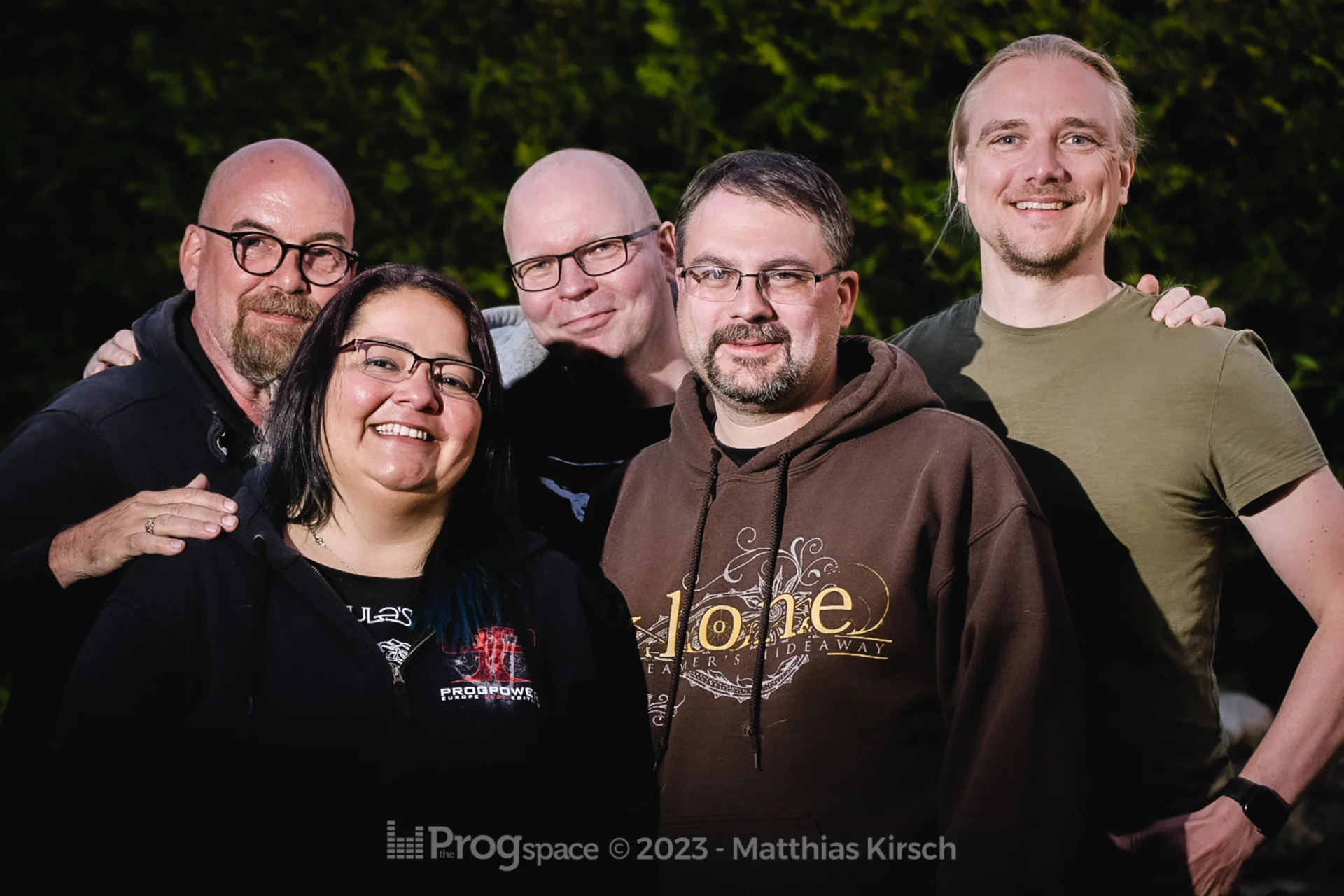
Michael Bodin, Van Kirsch, Kim Olesen, Matthias Kirsch, Morten Gade Sørensen
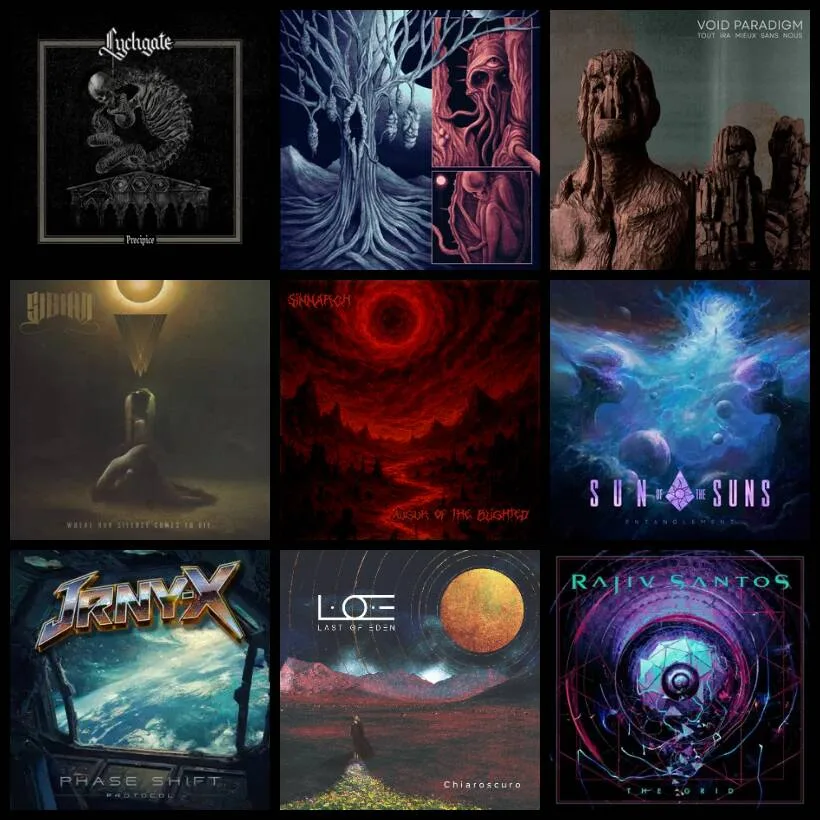
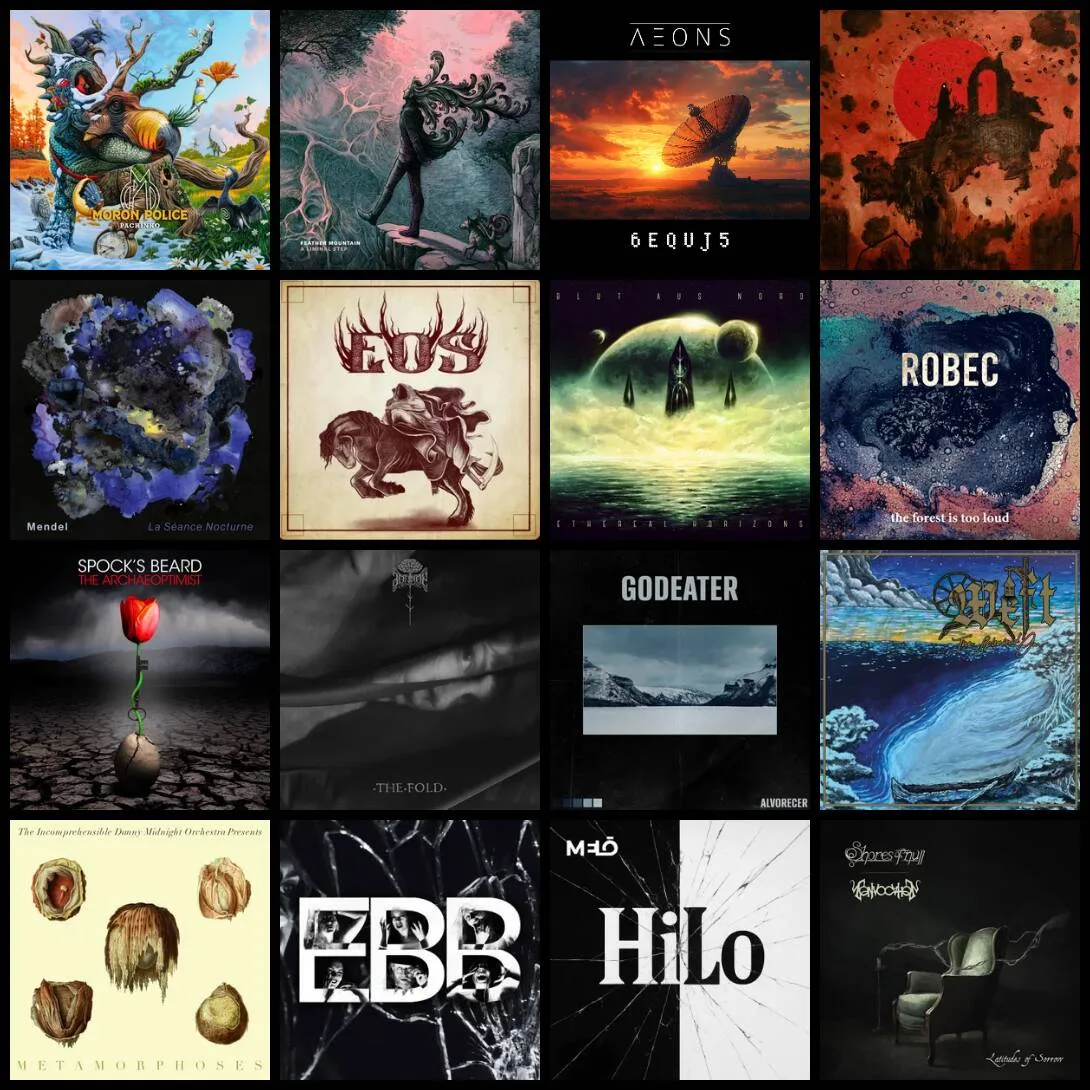
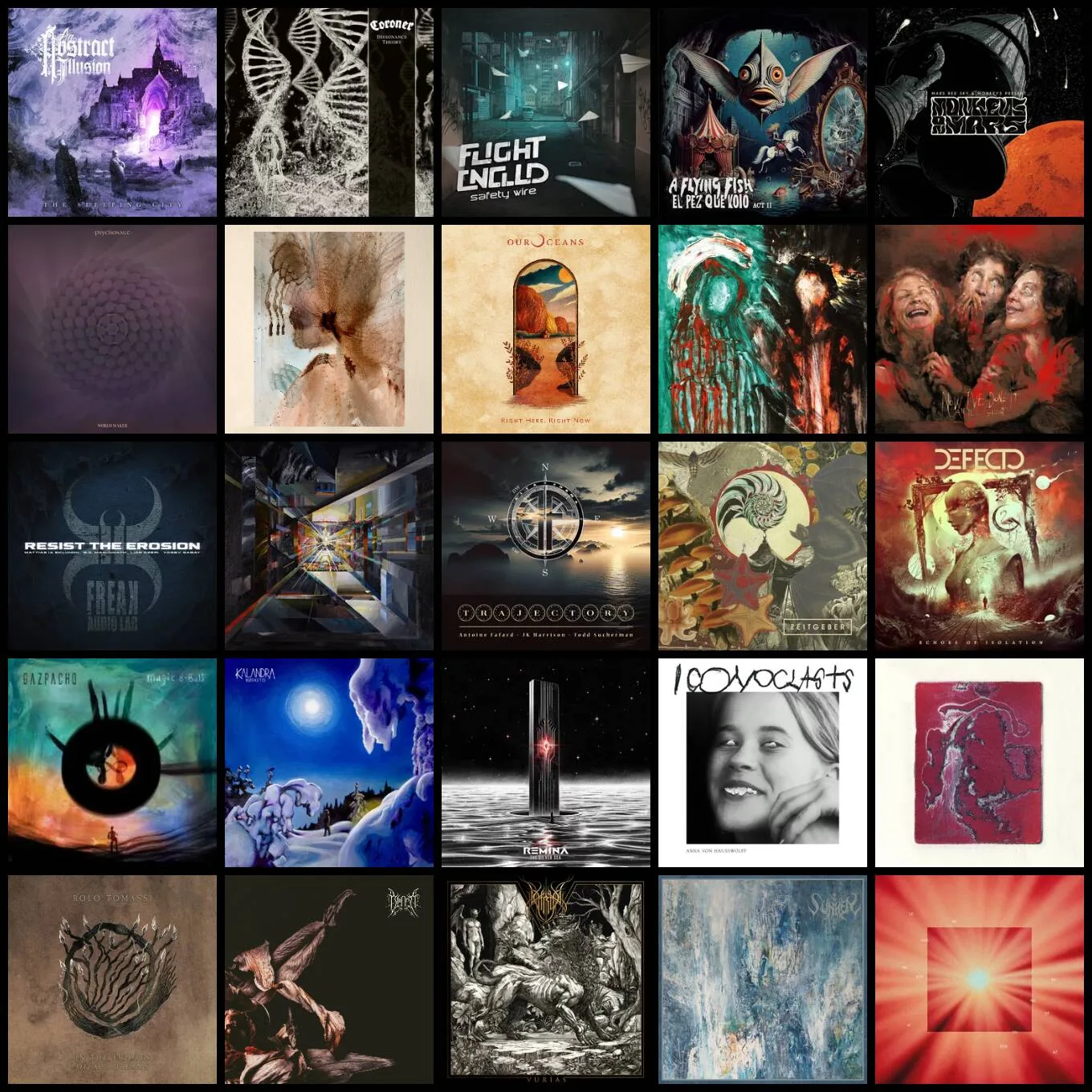
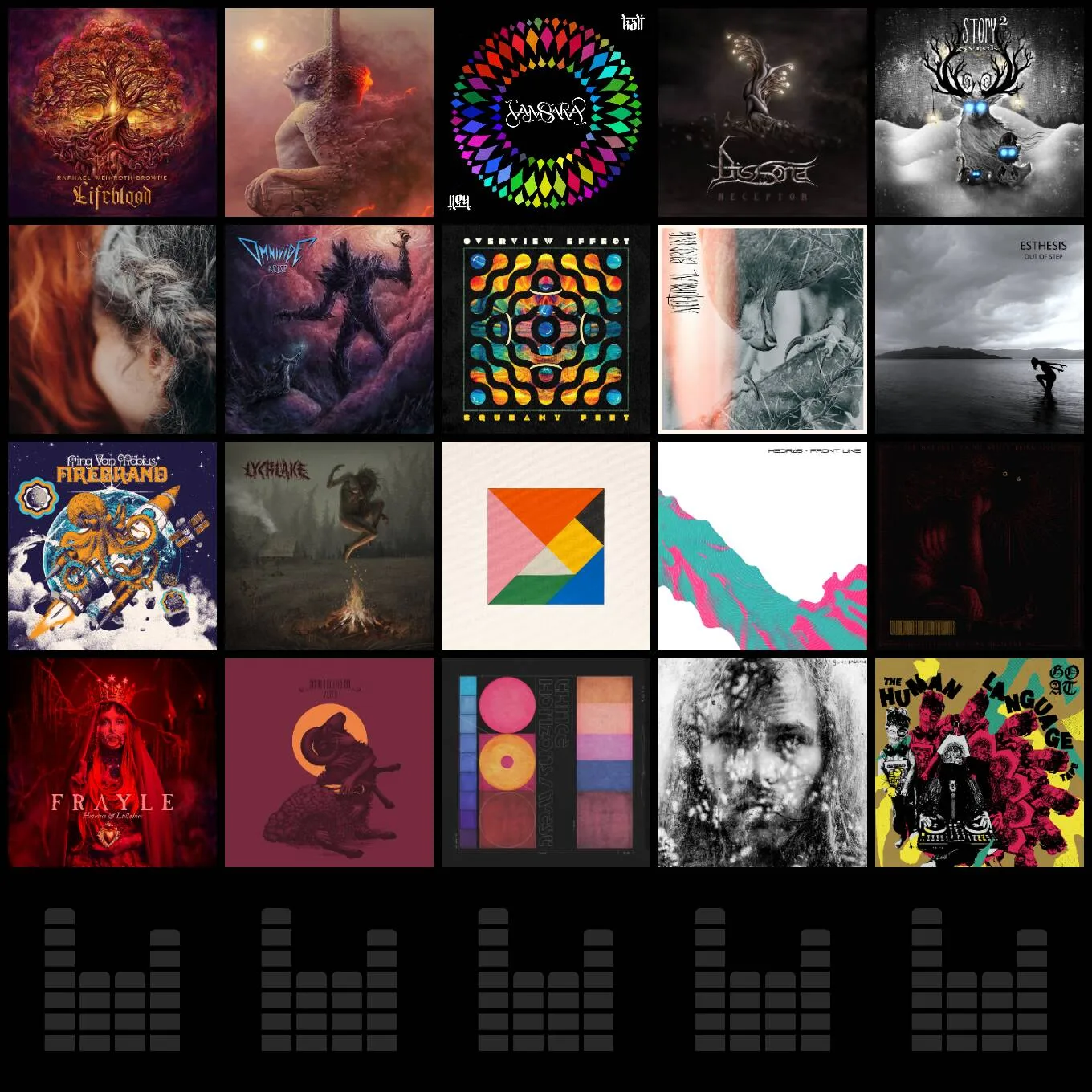
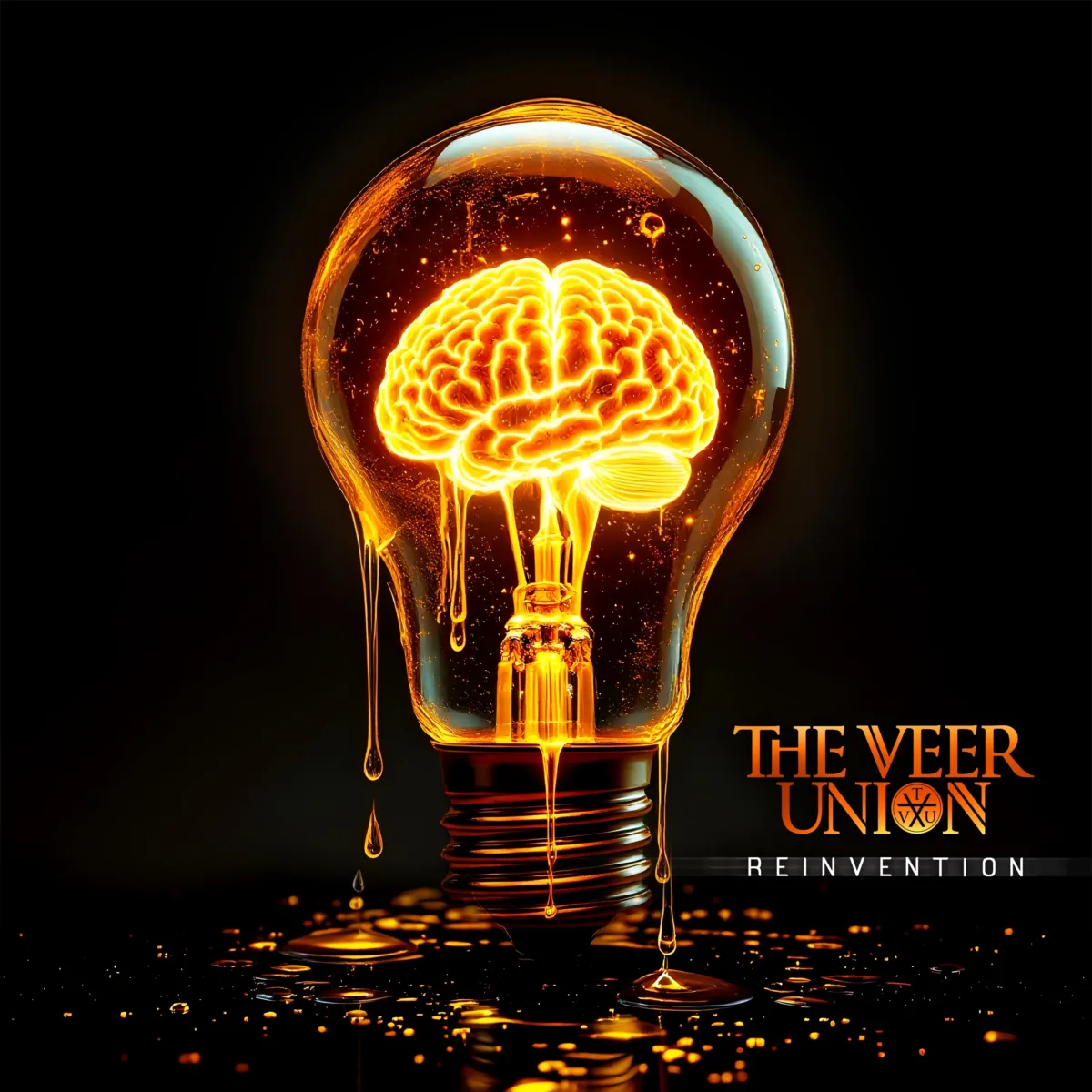
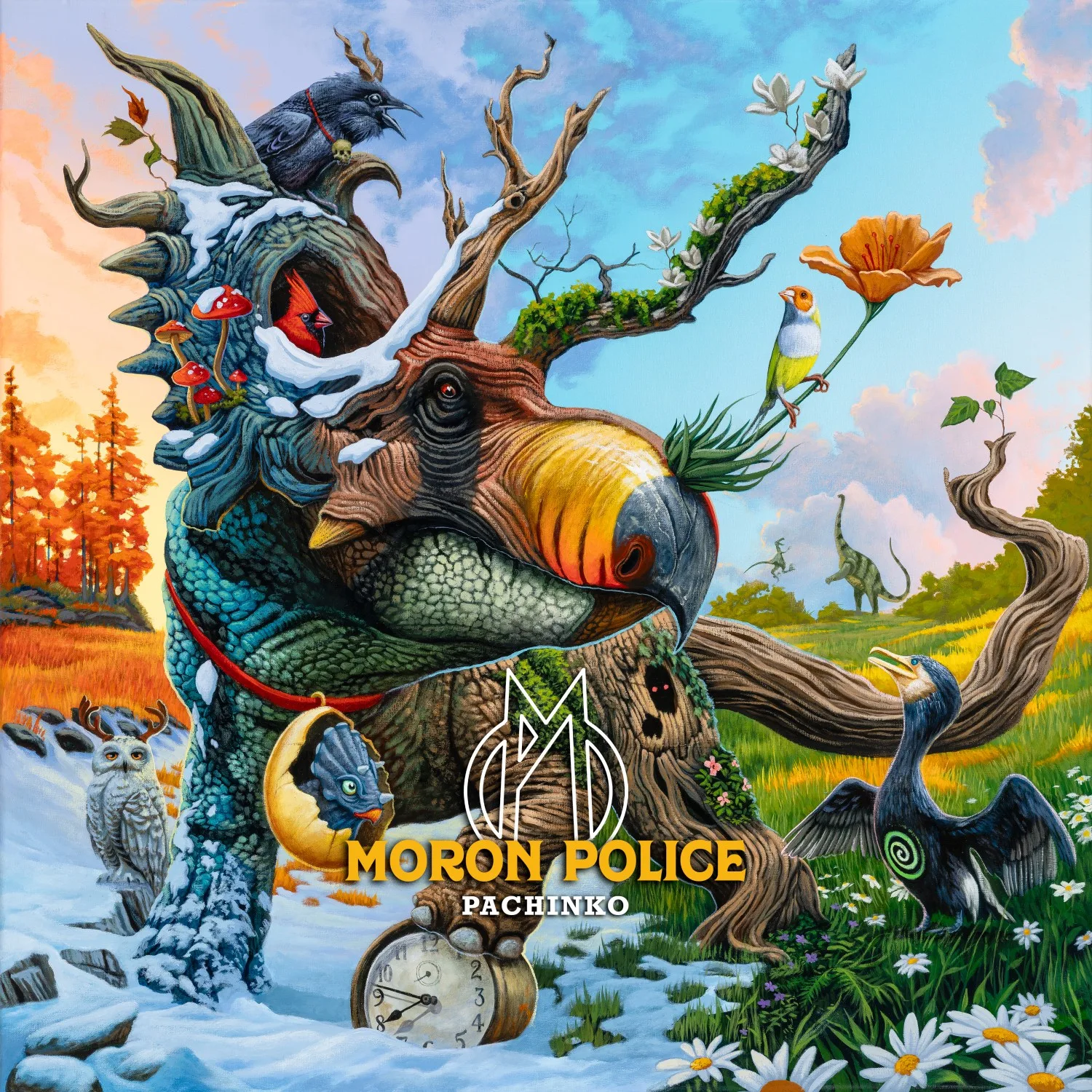
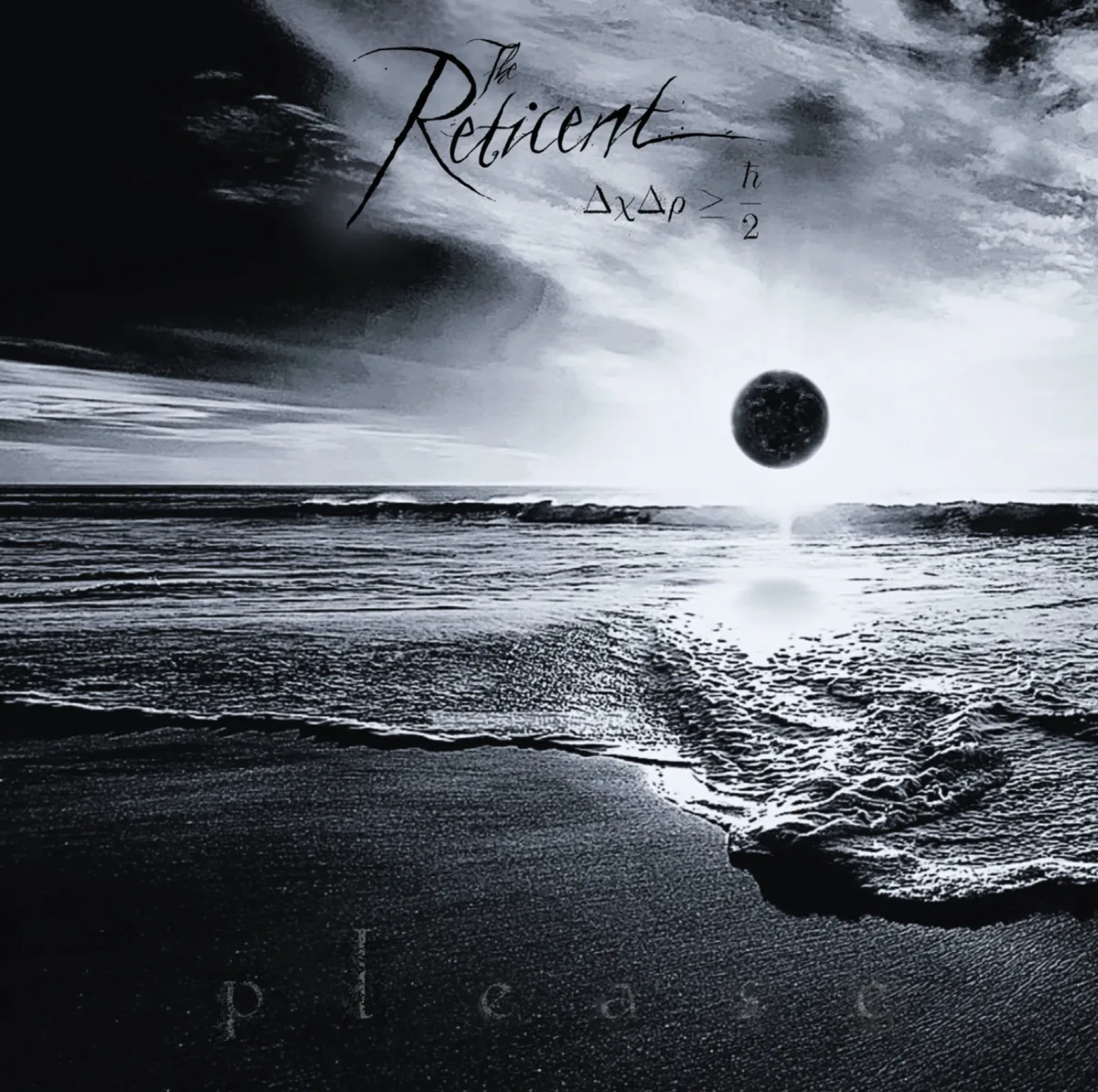
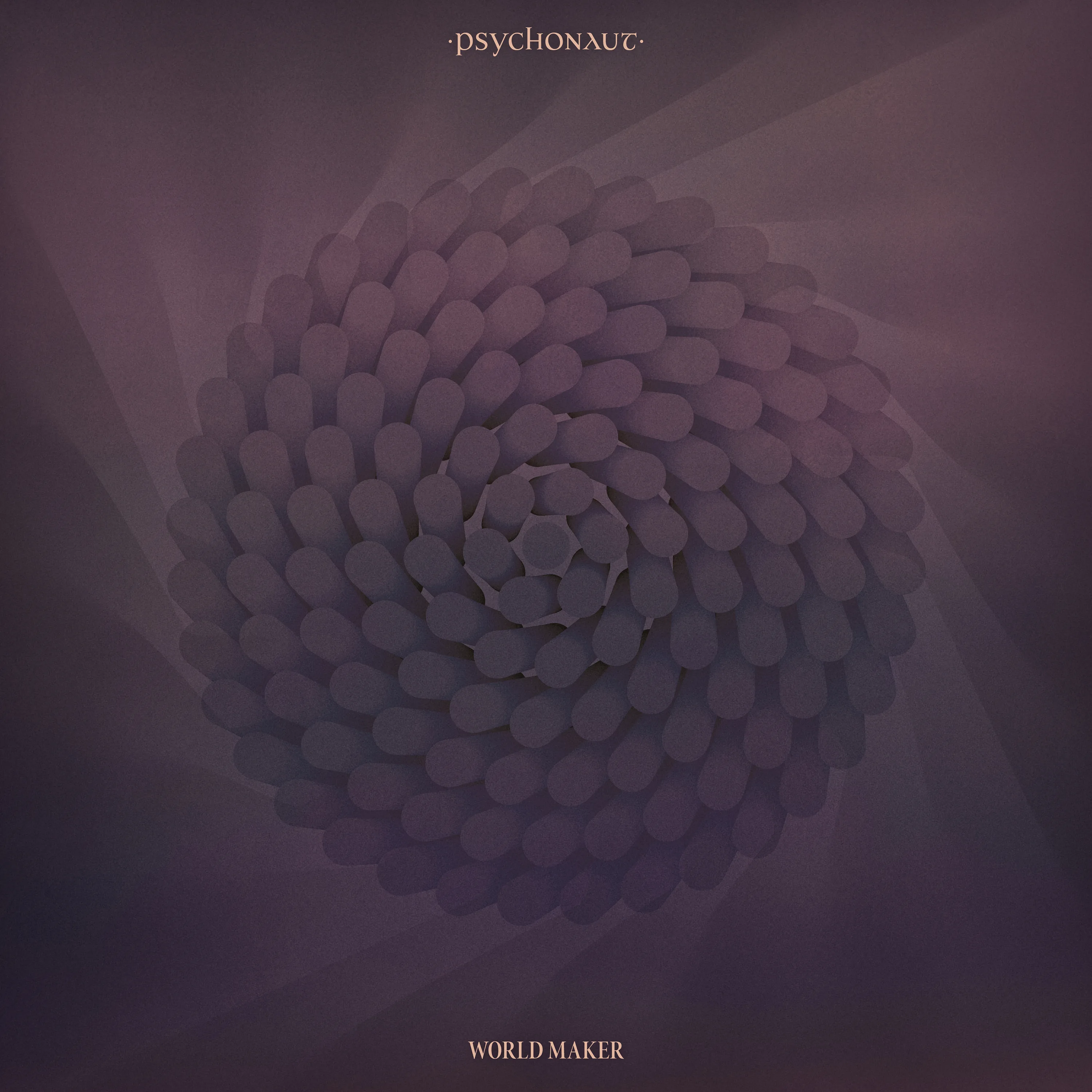
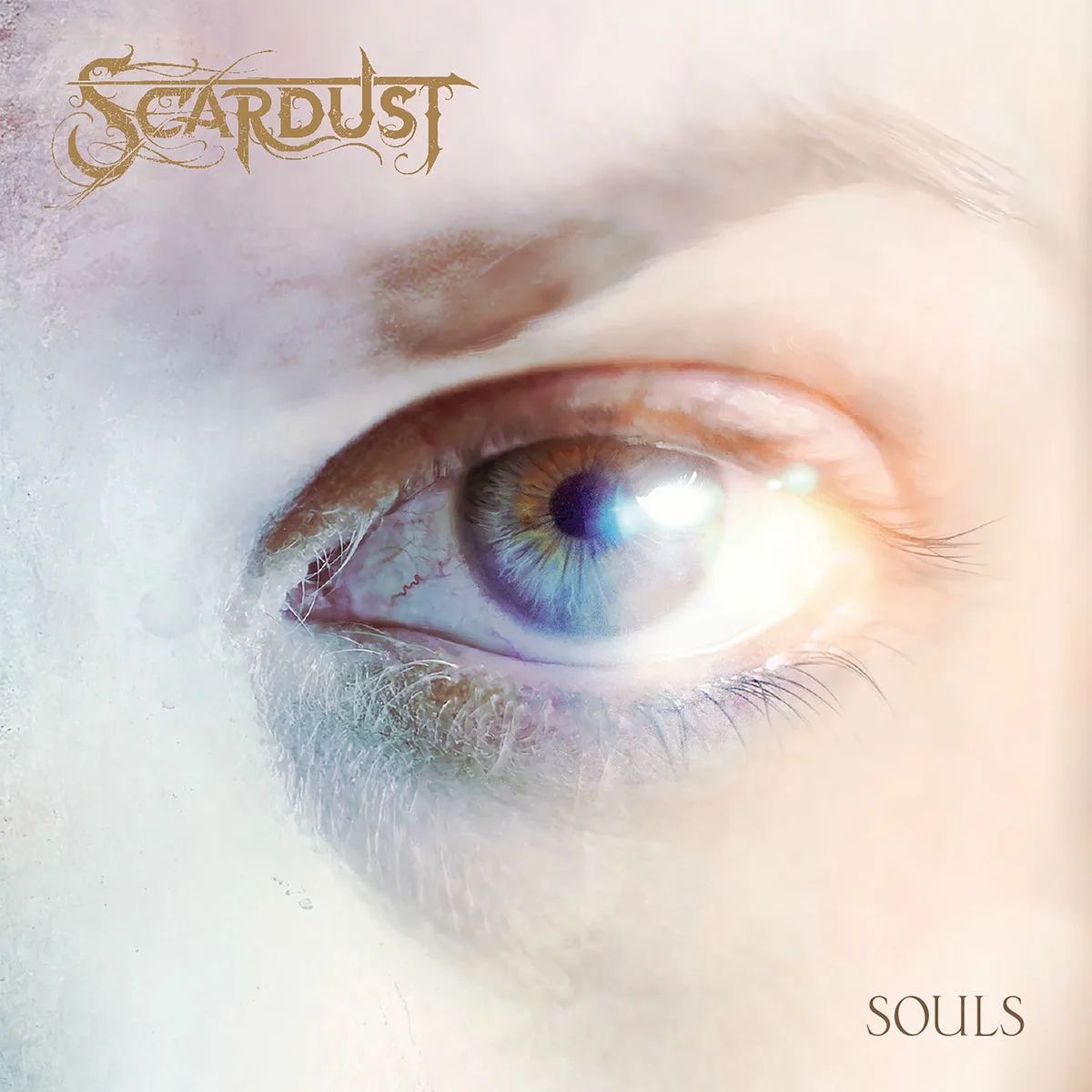
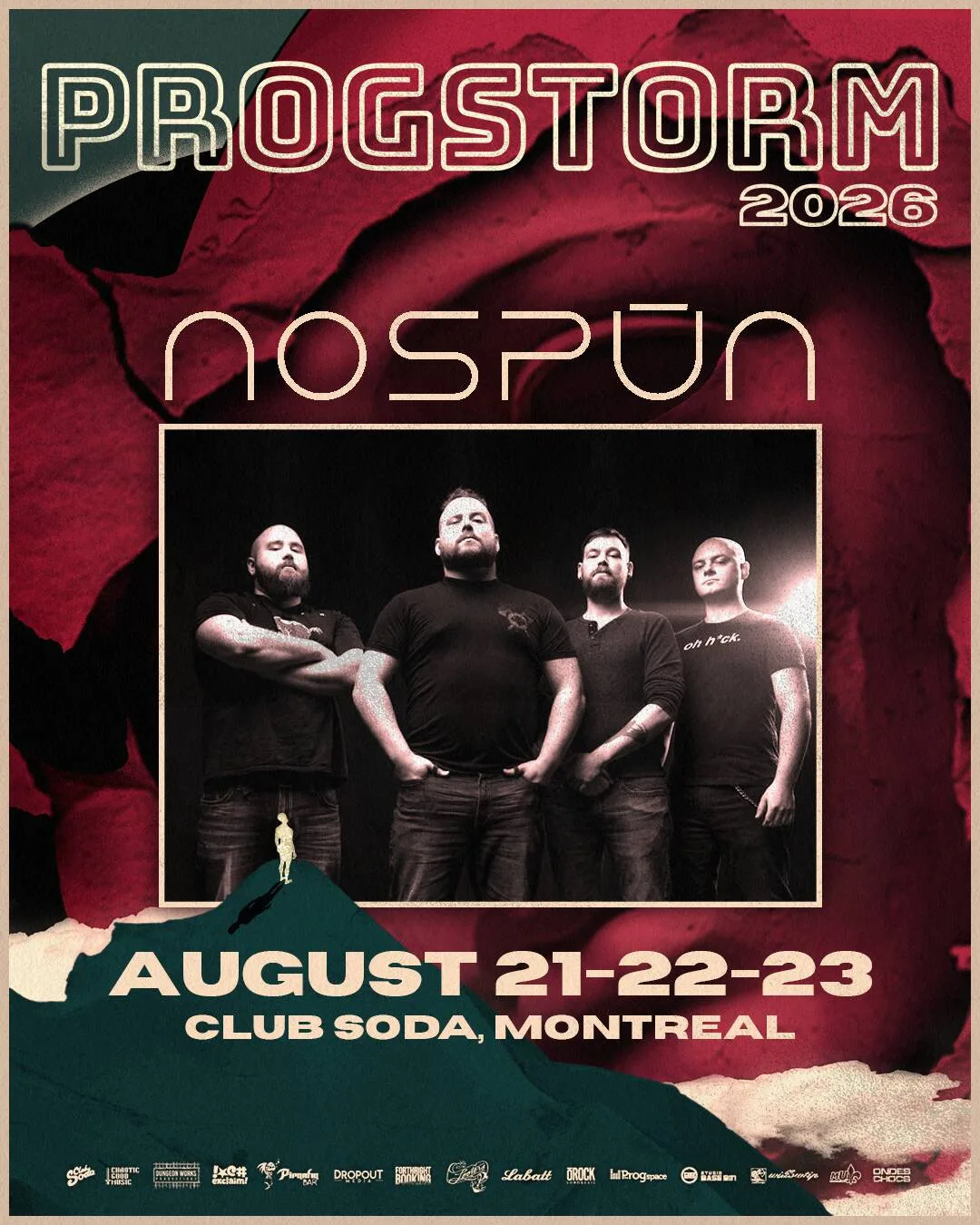
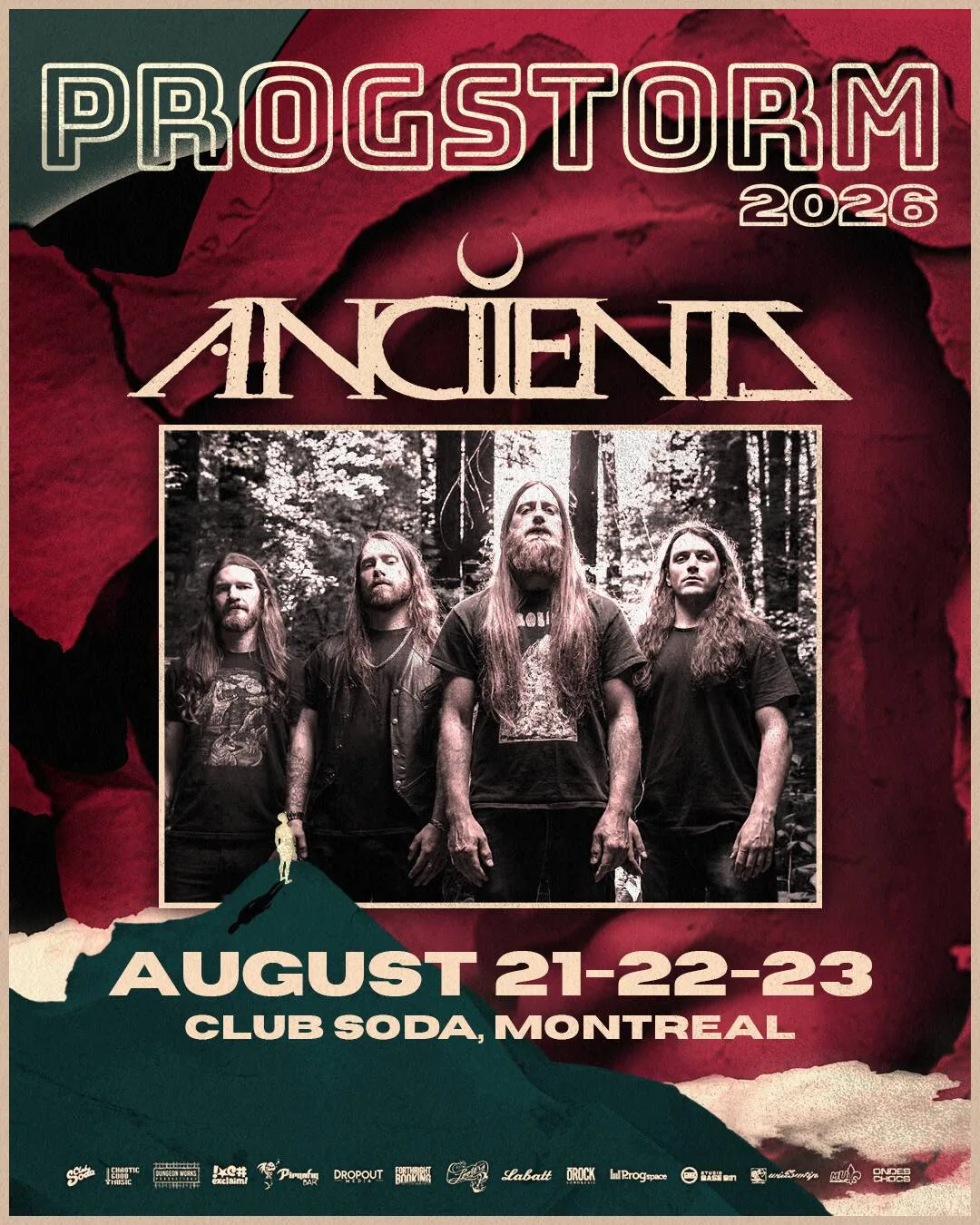
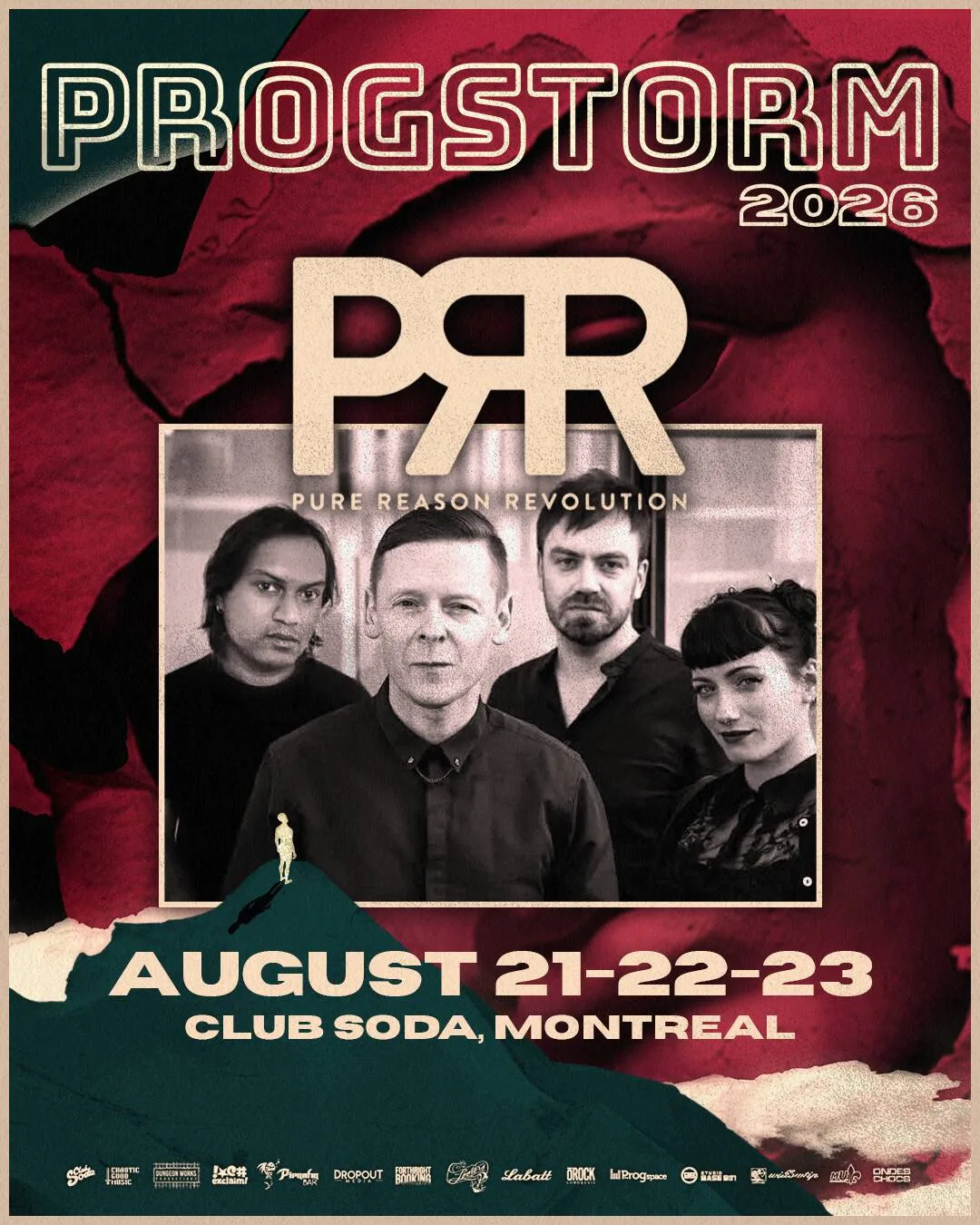
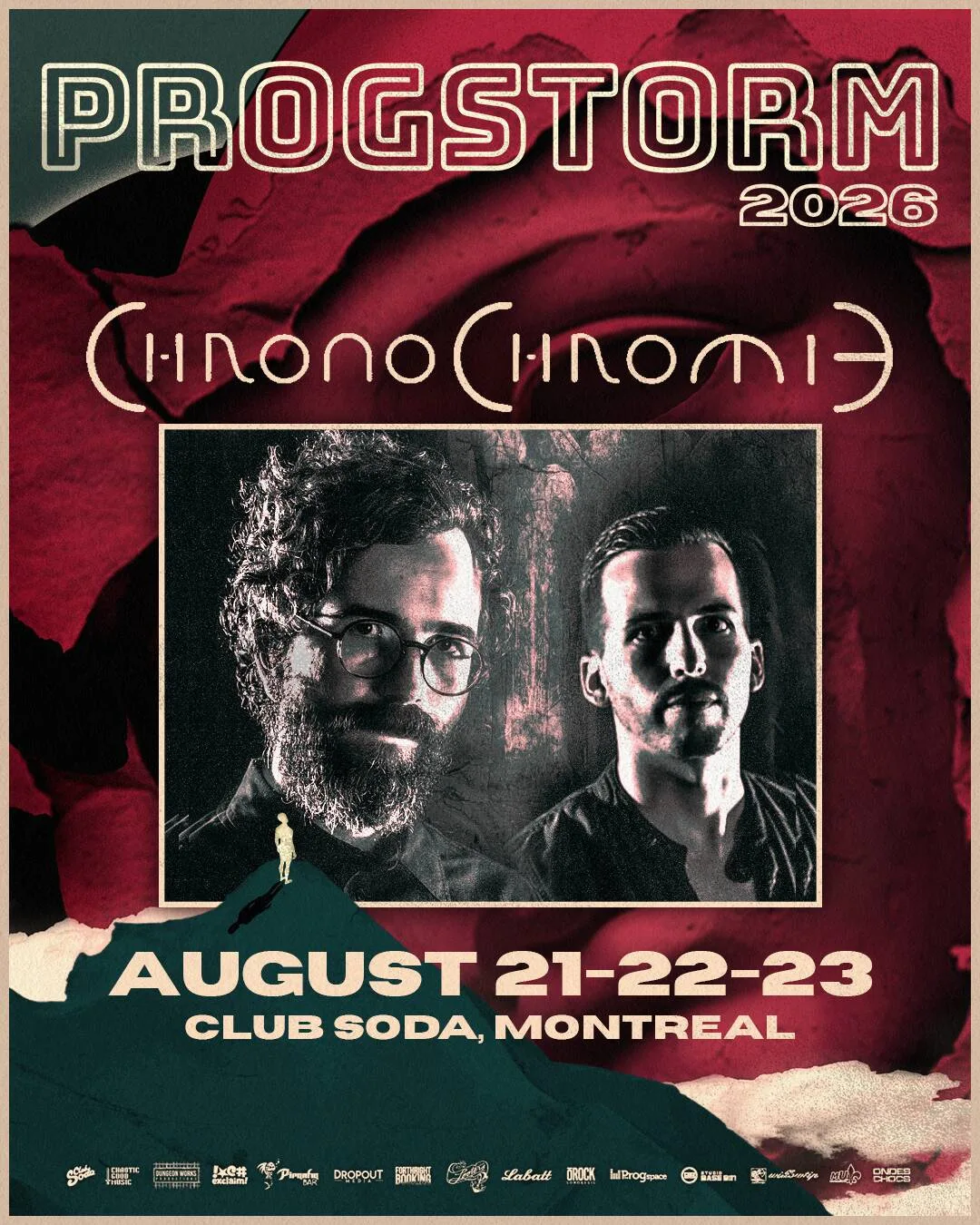
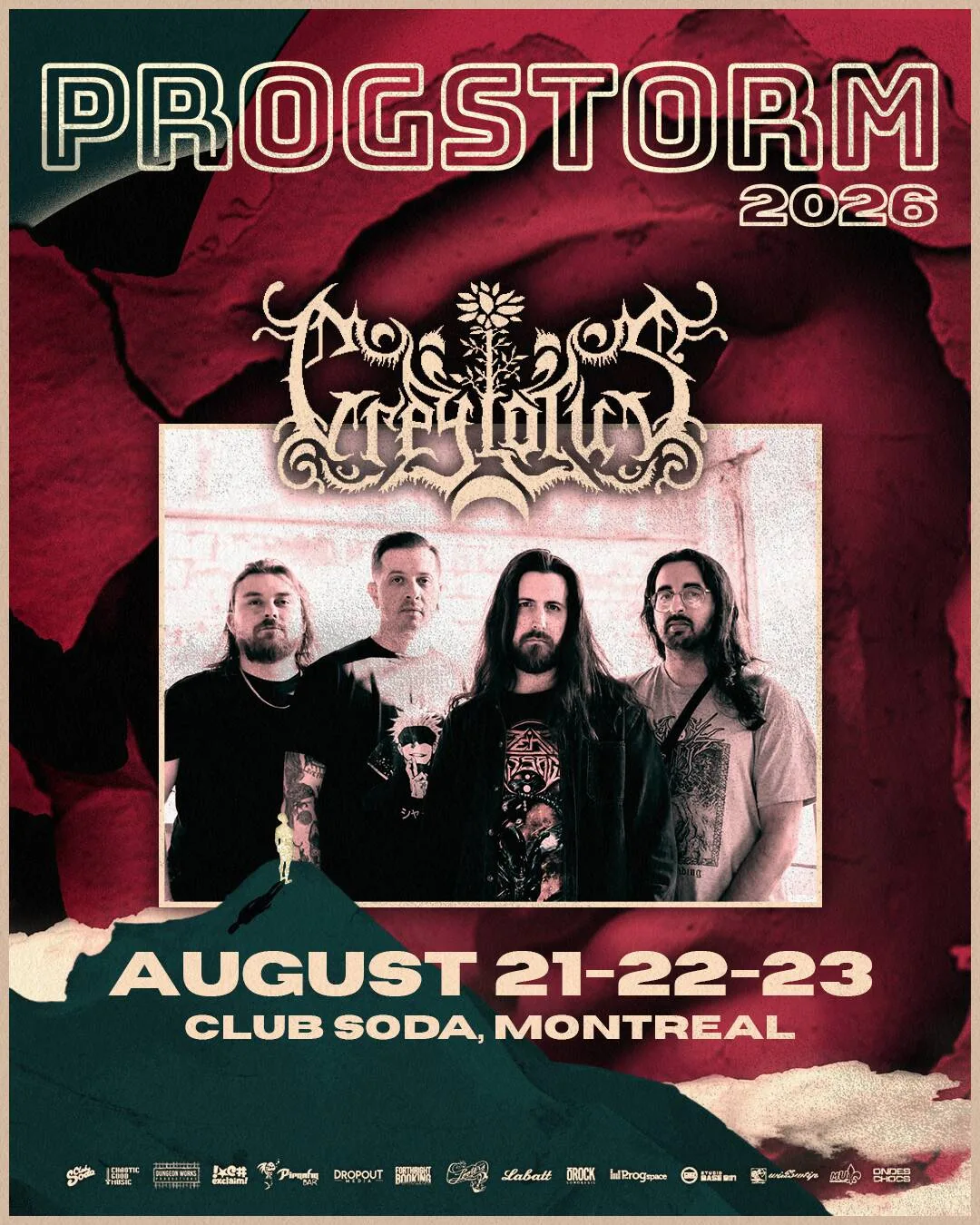

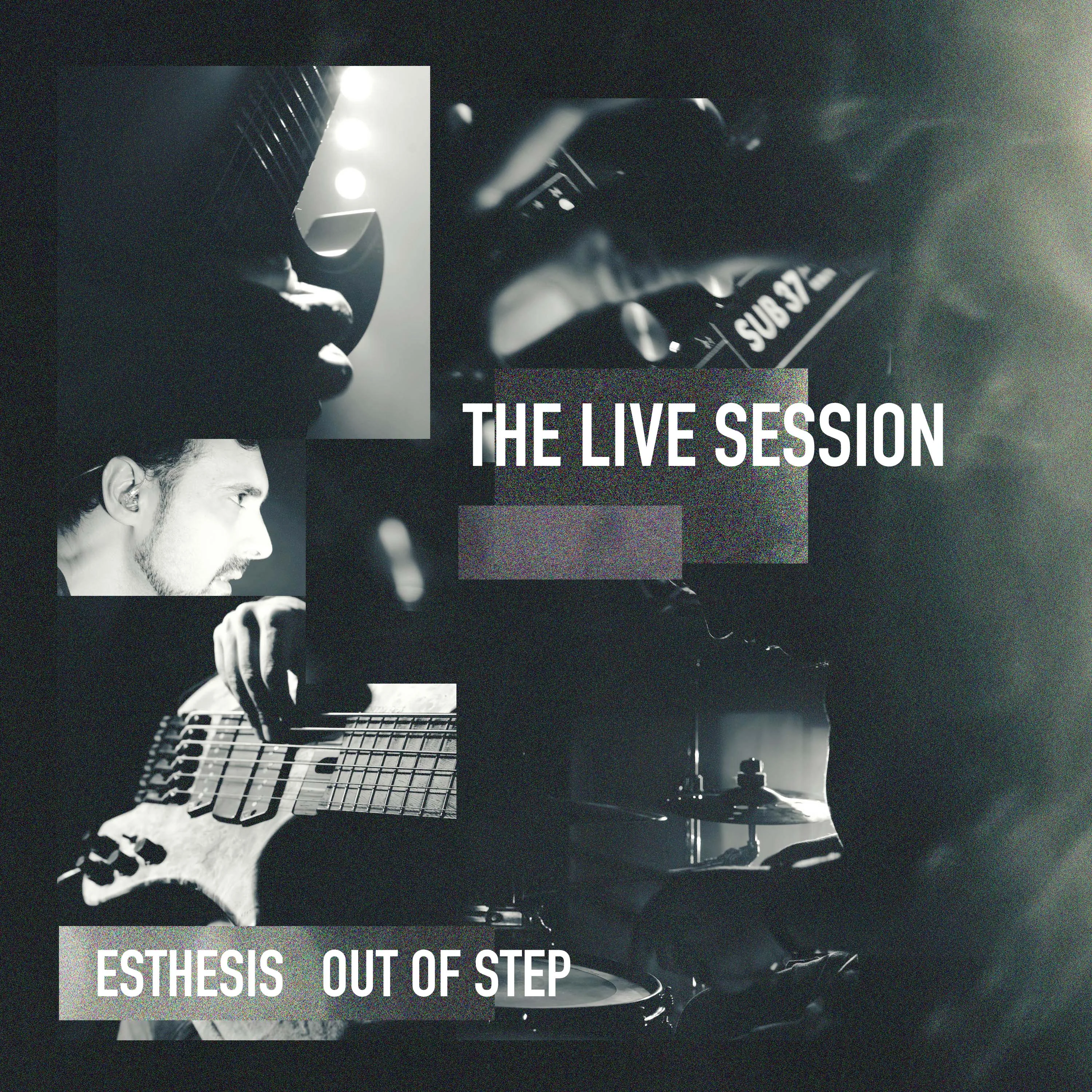
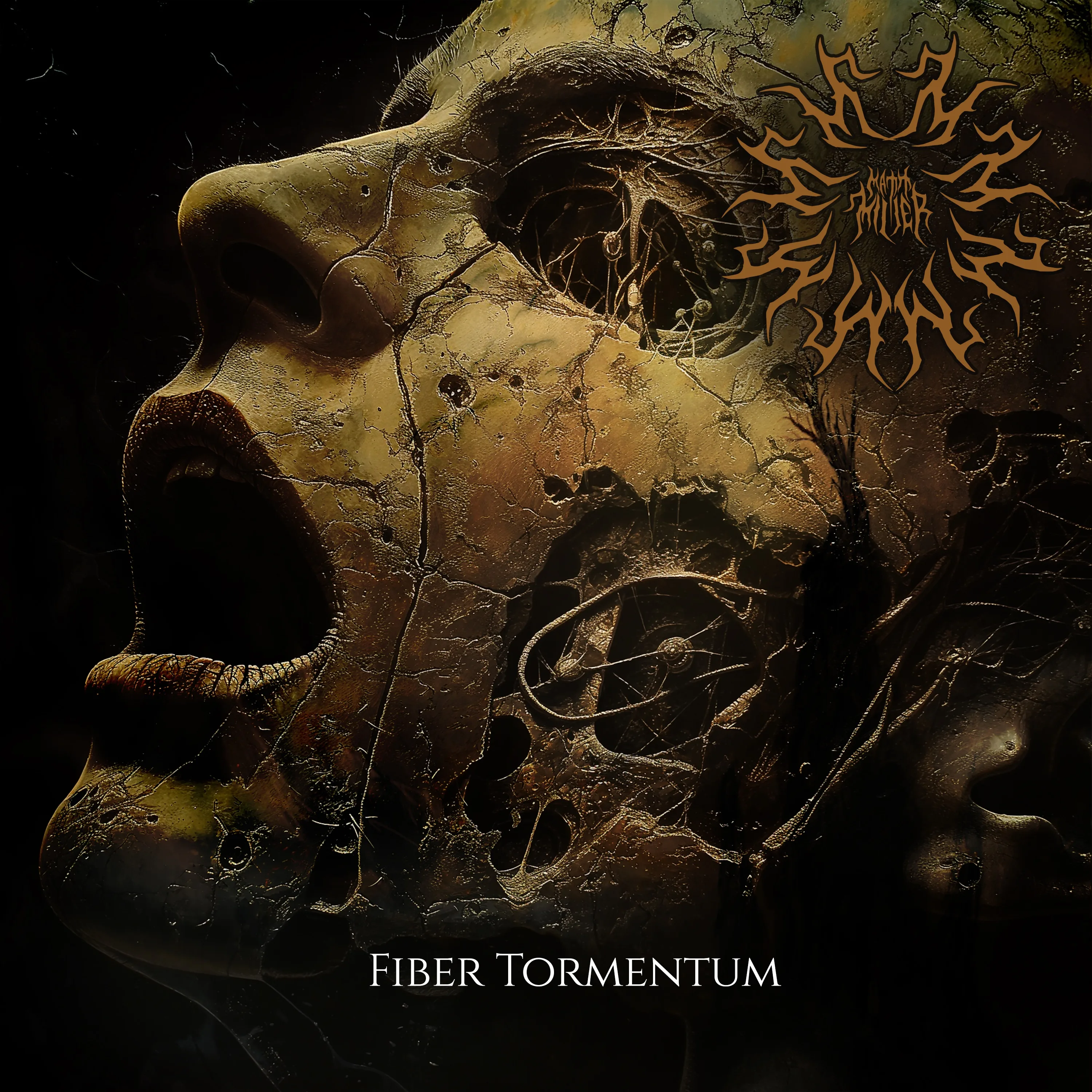
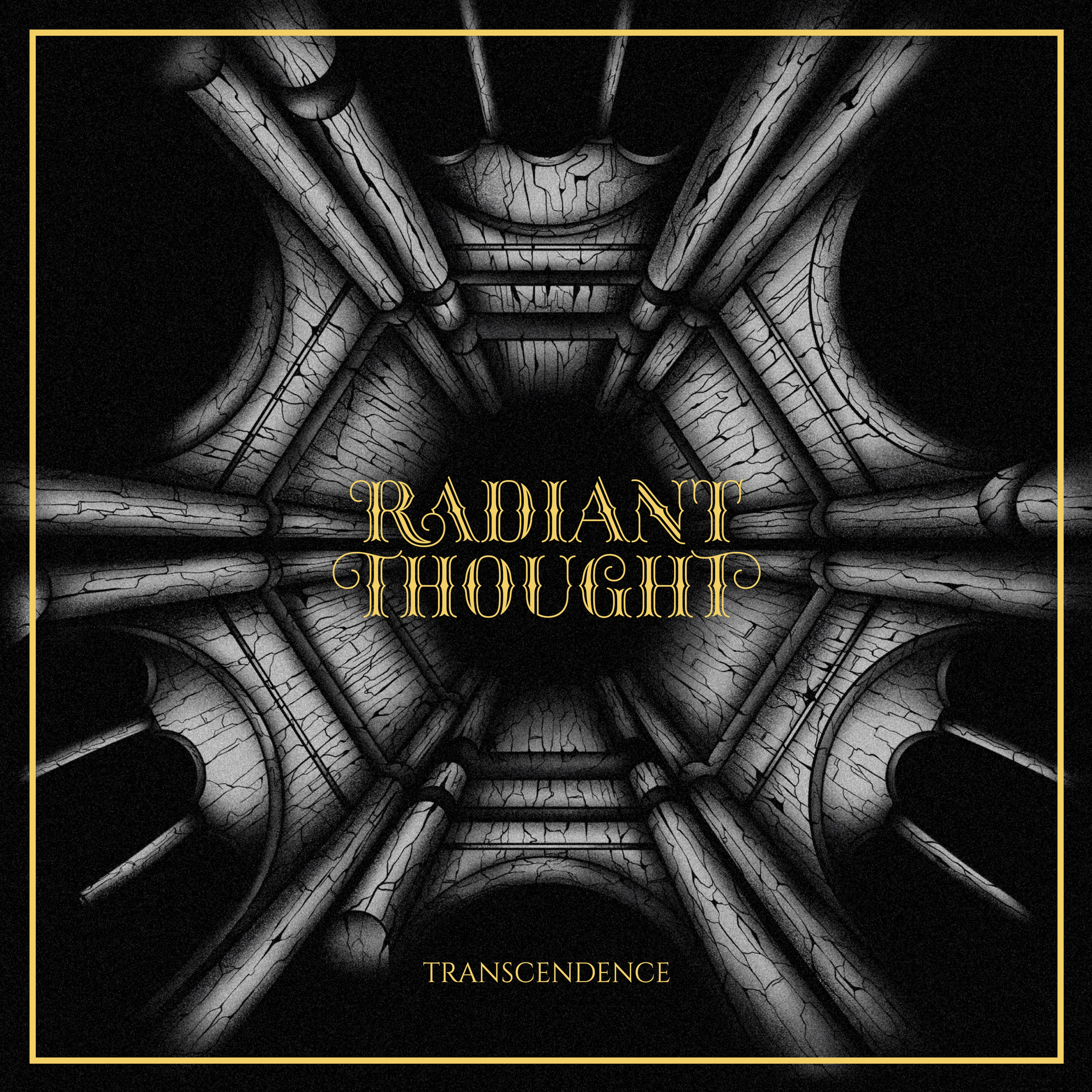
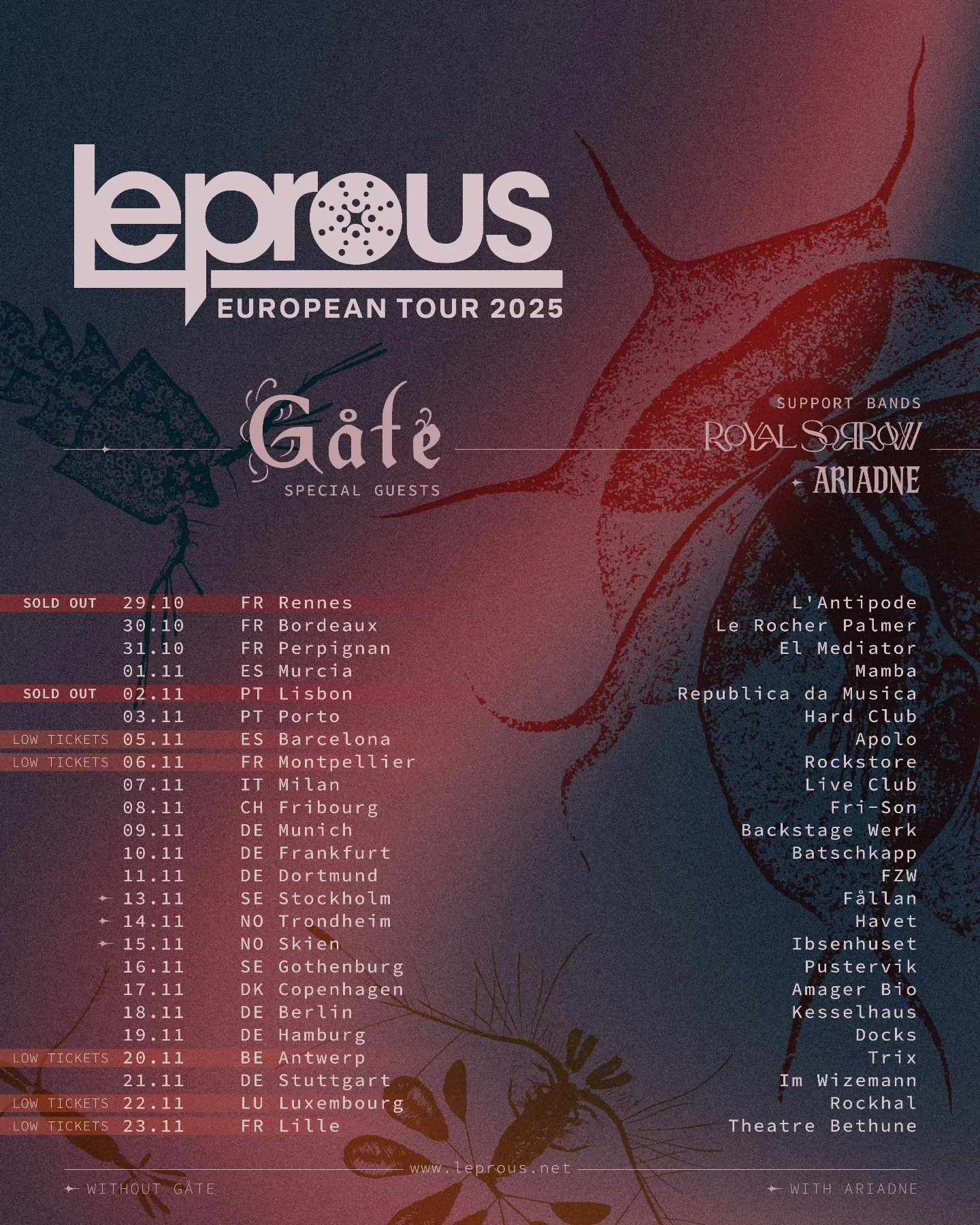
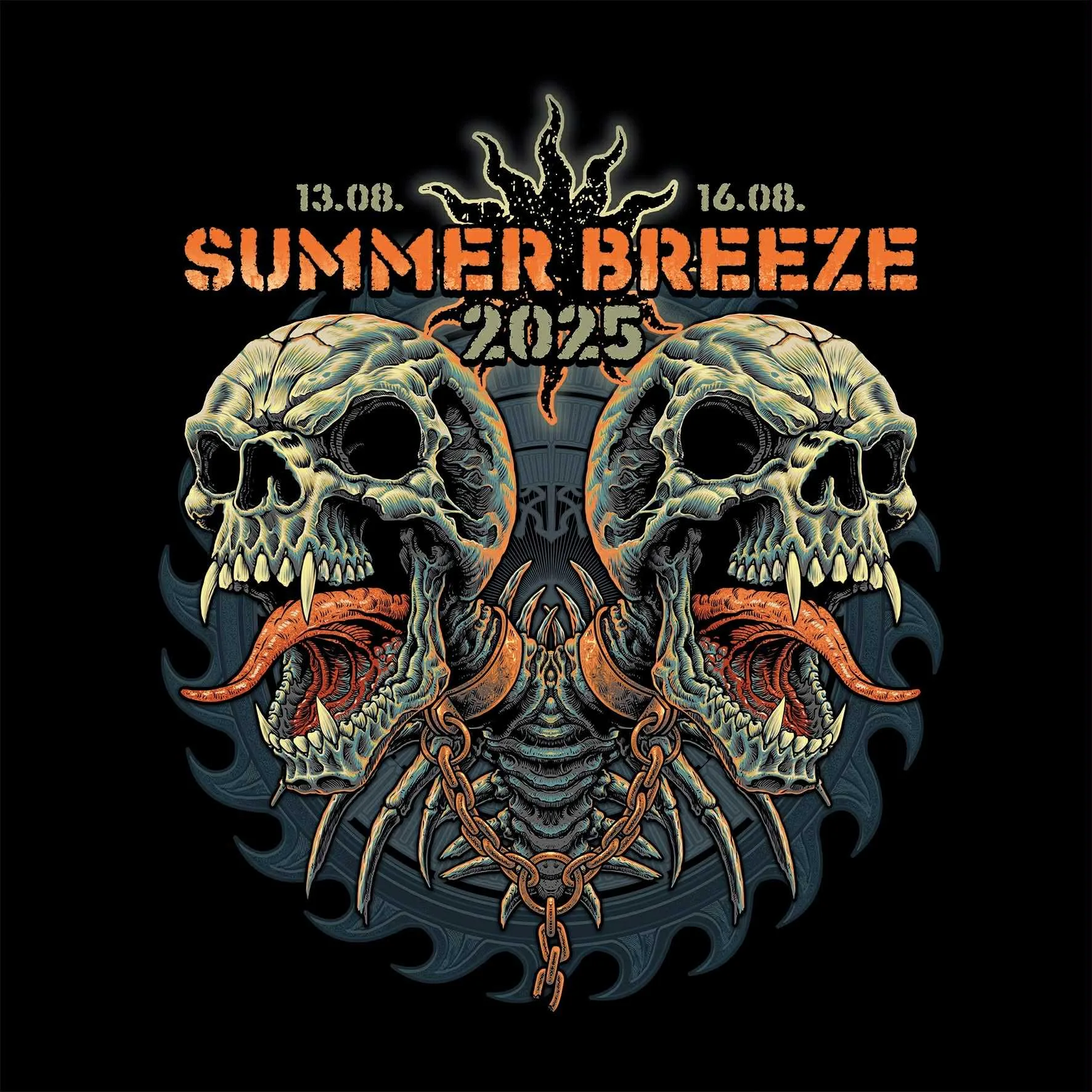



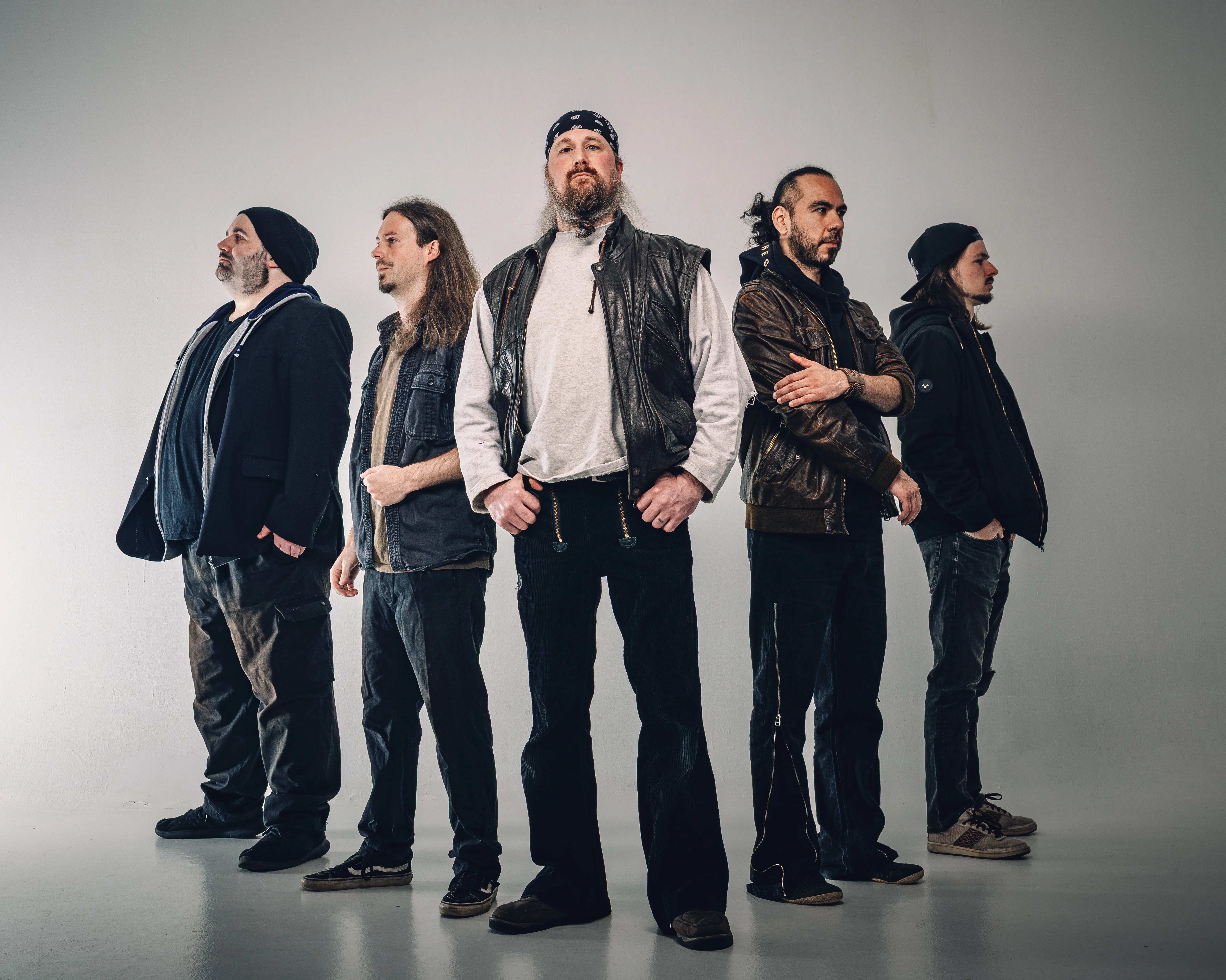
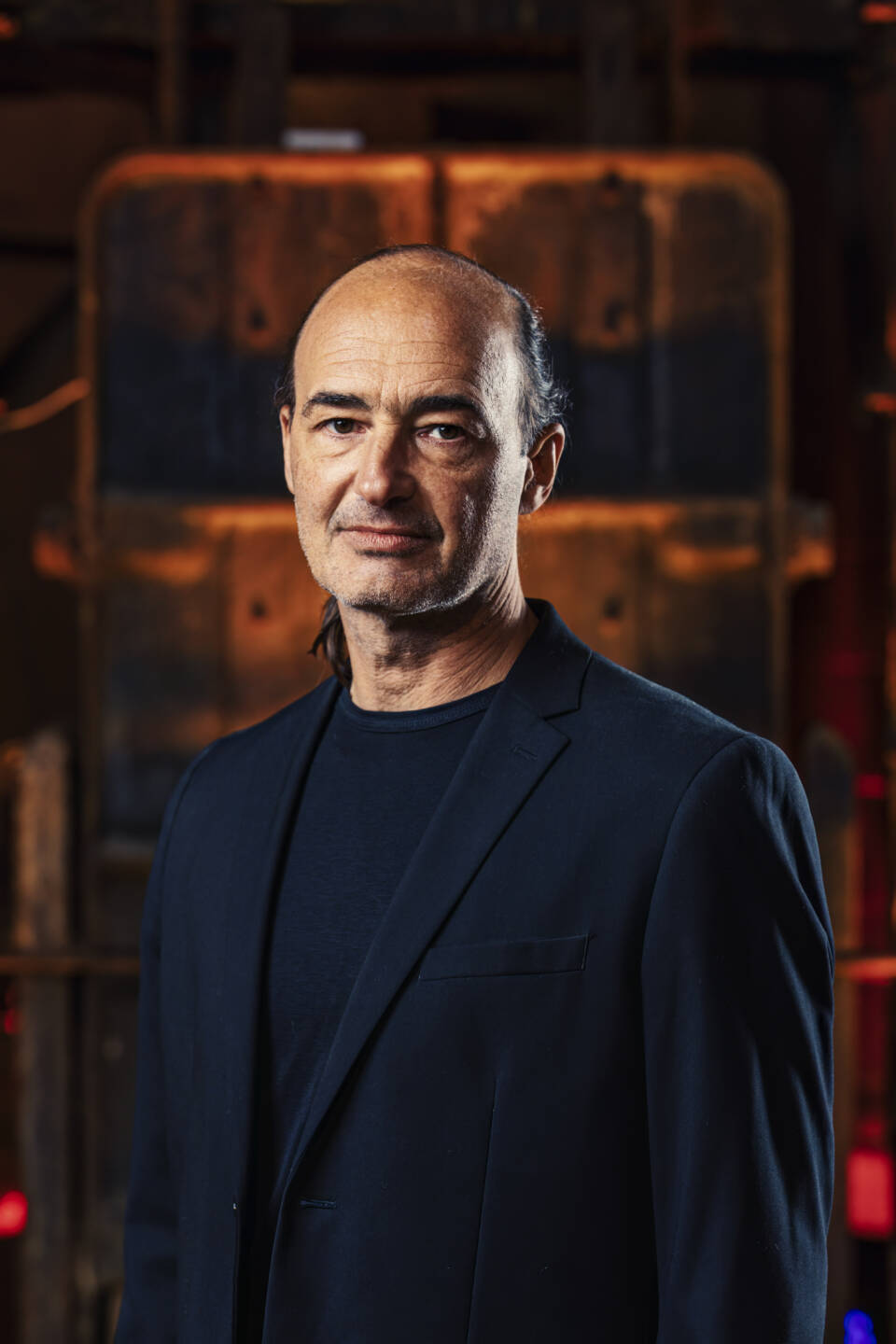
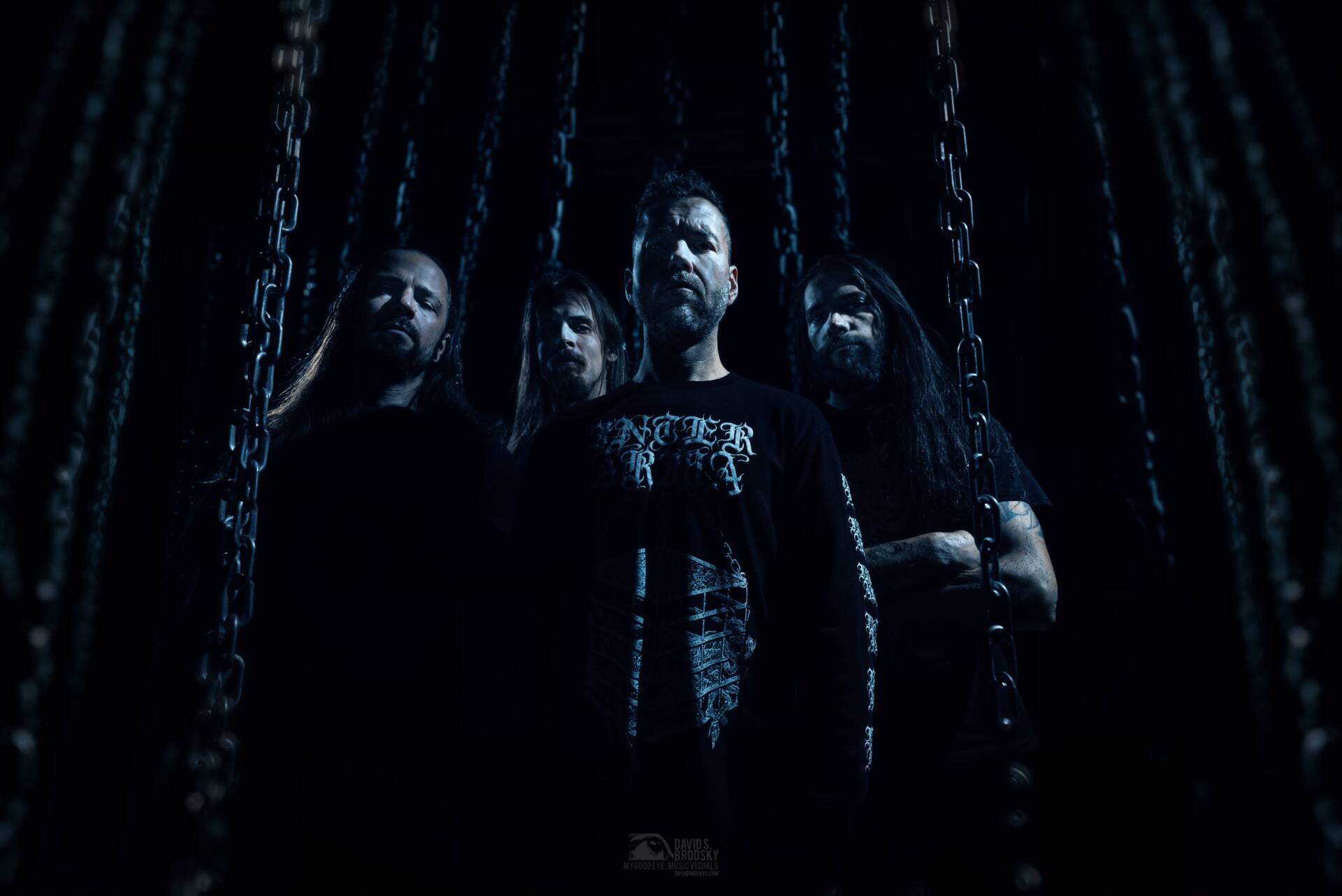
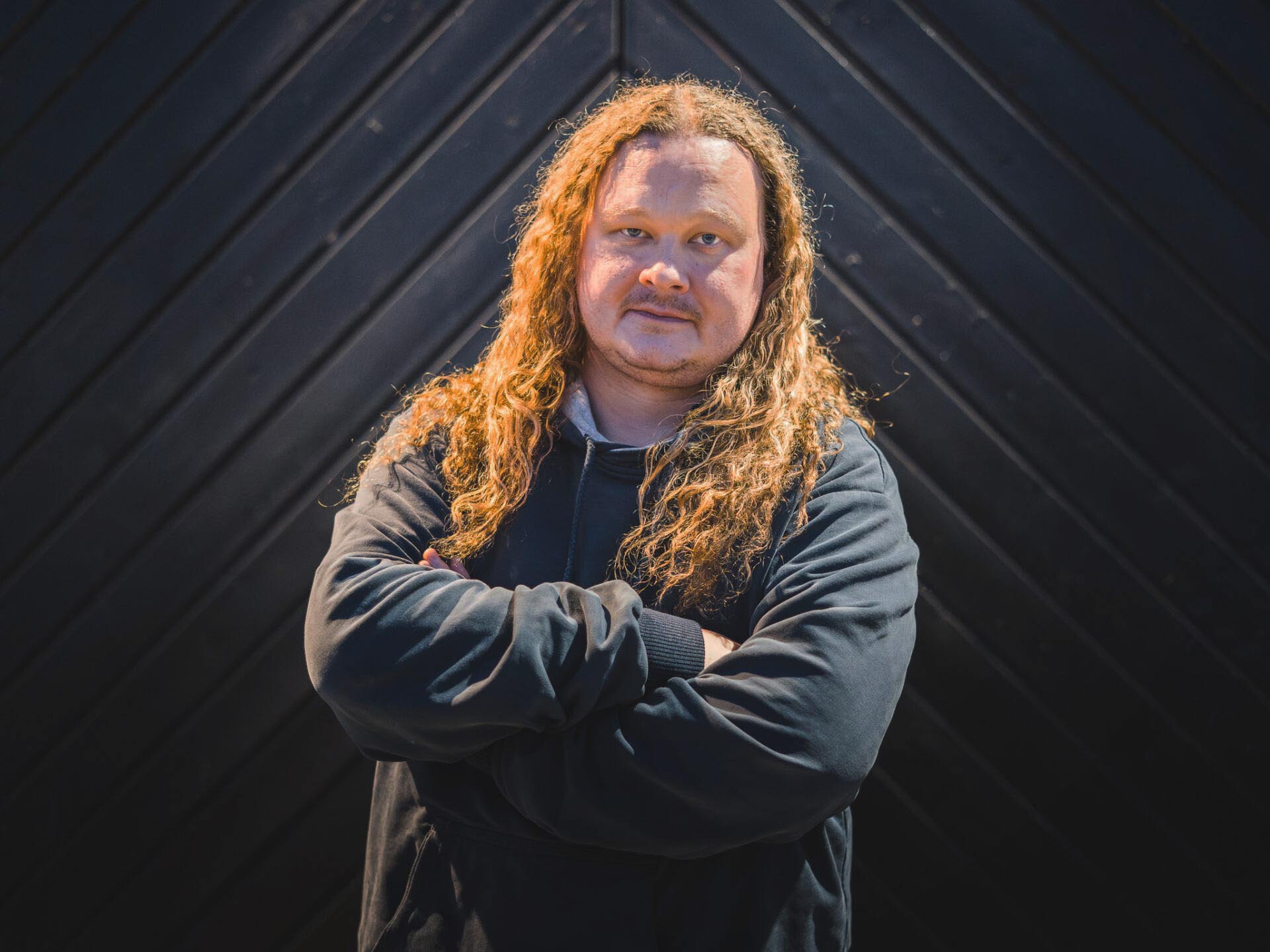
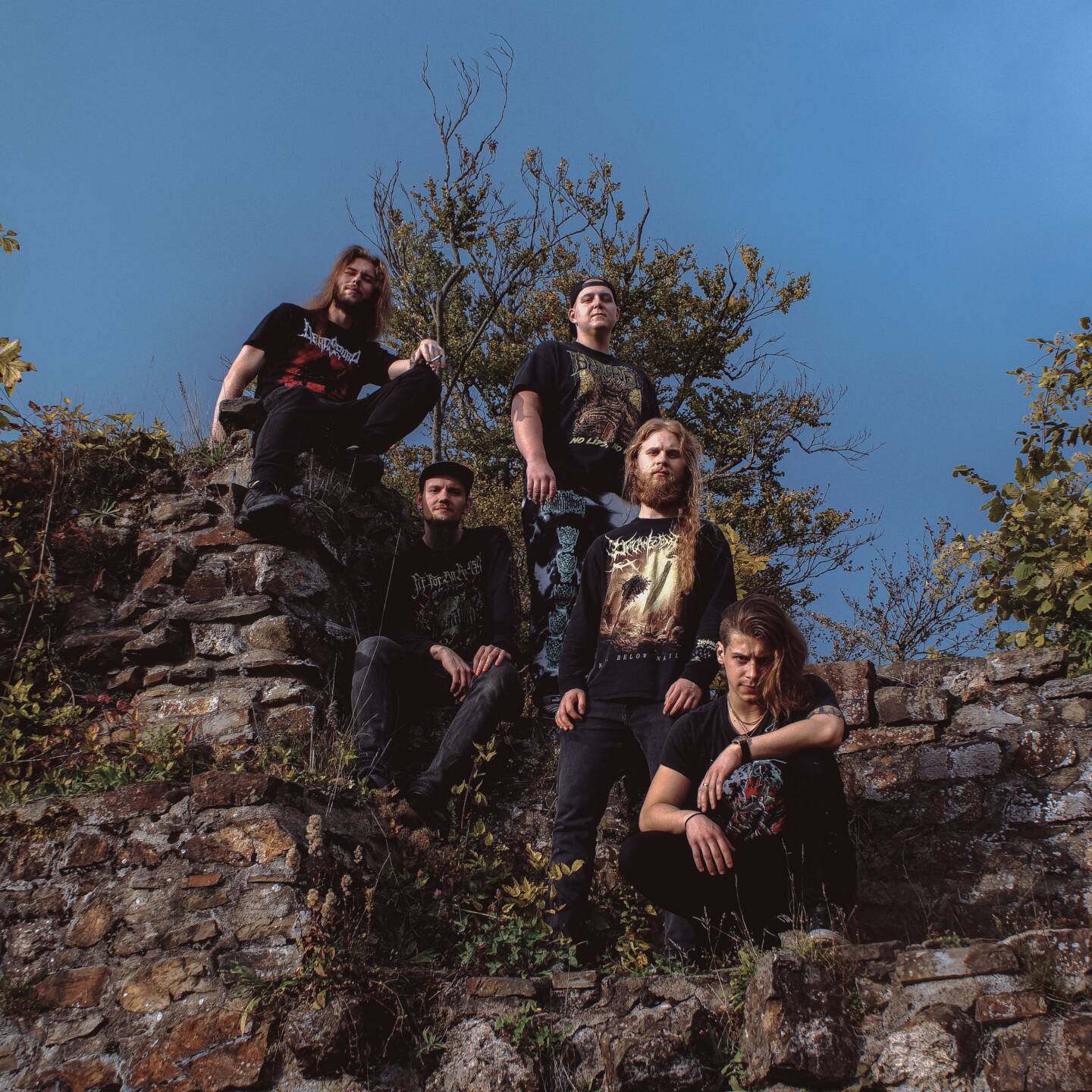

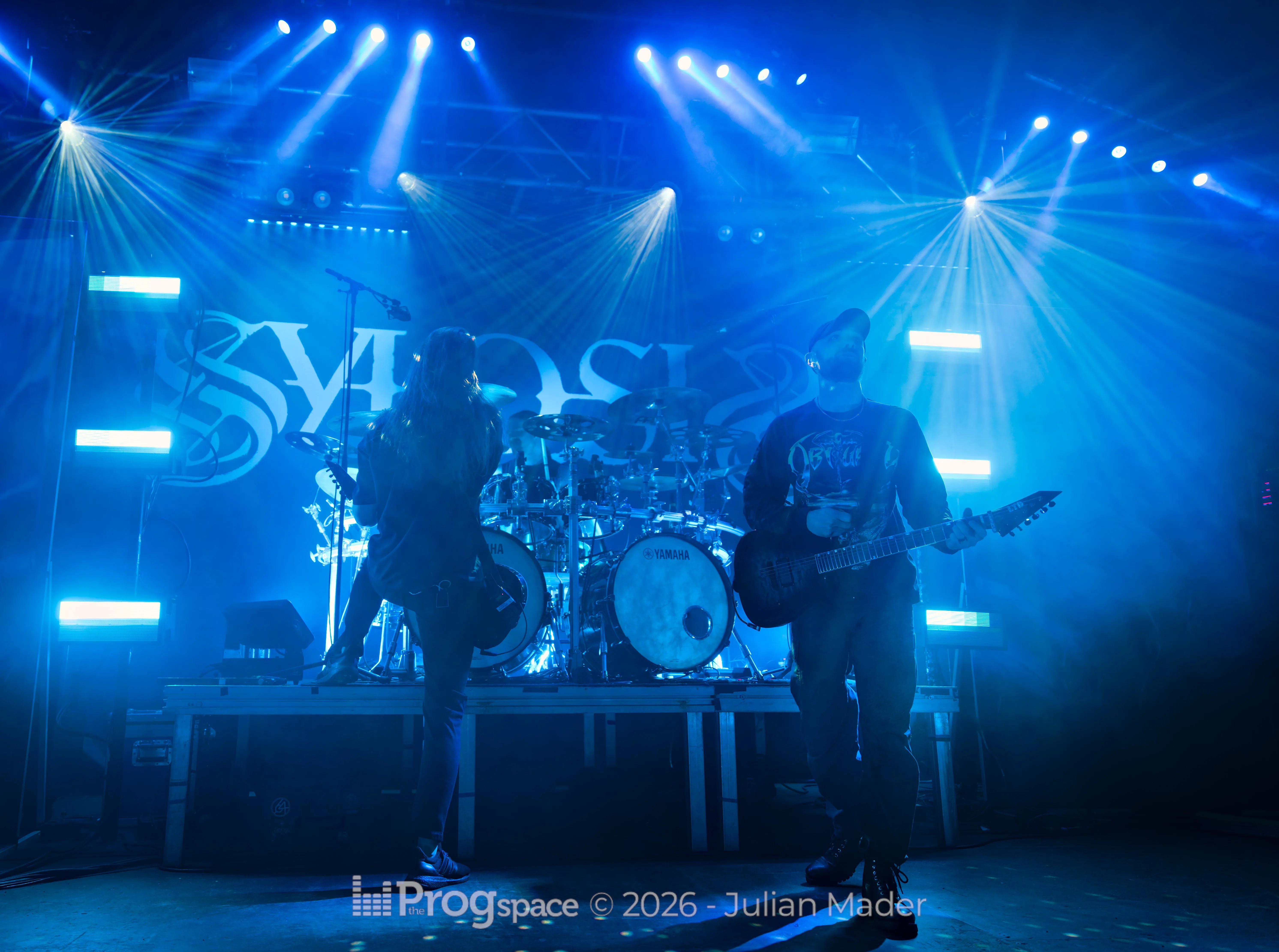
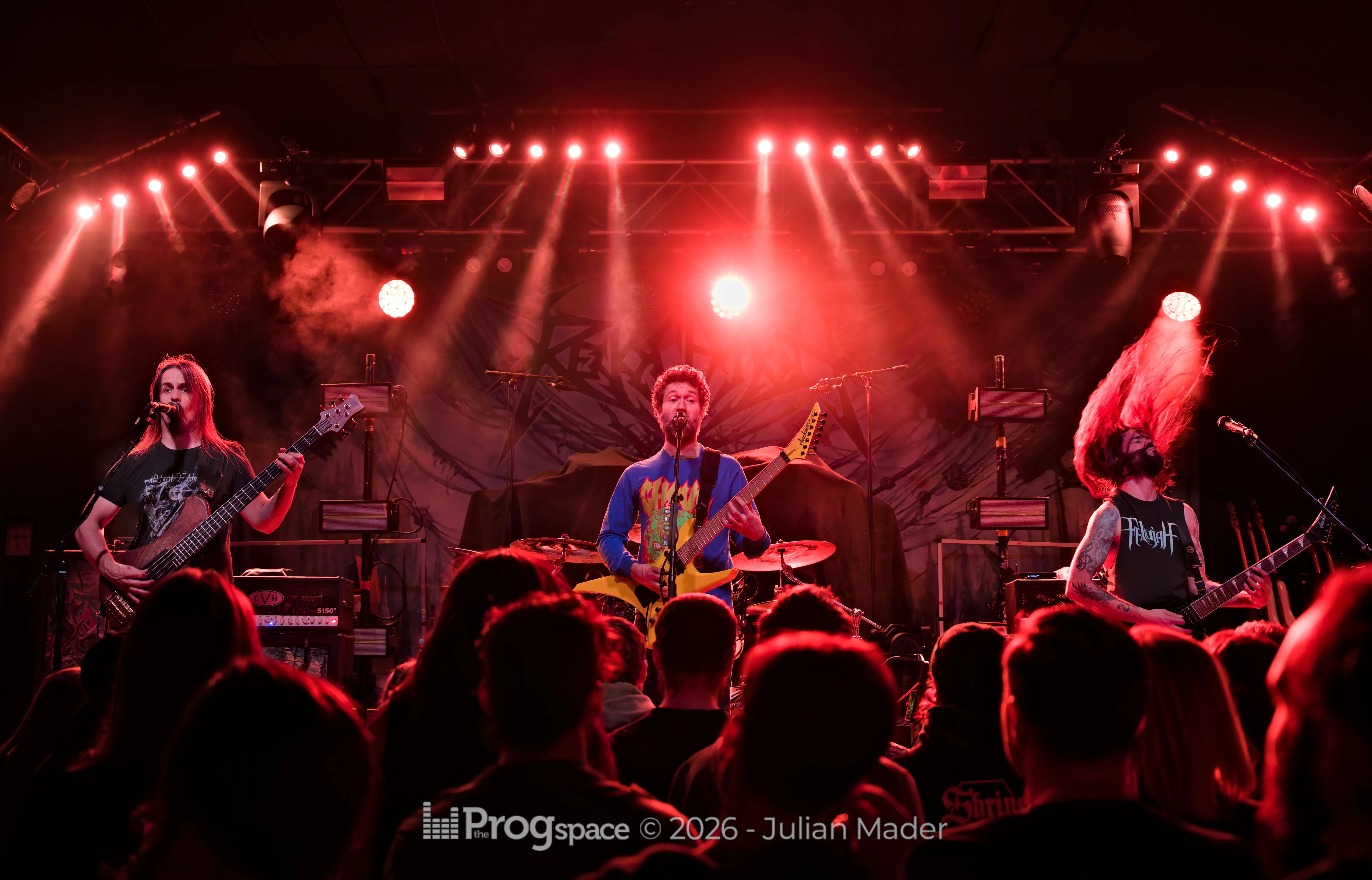
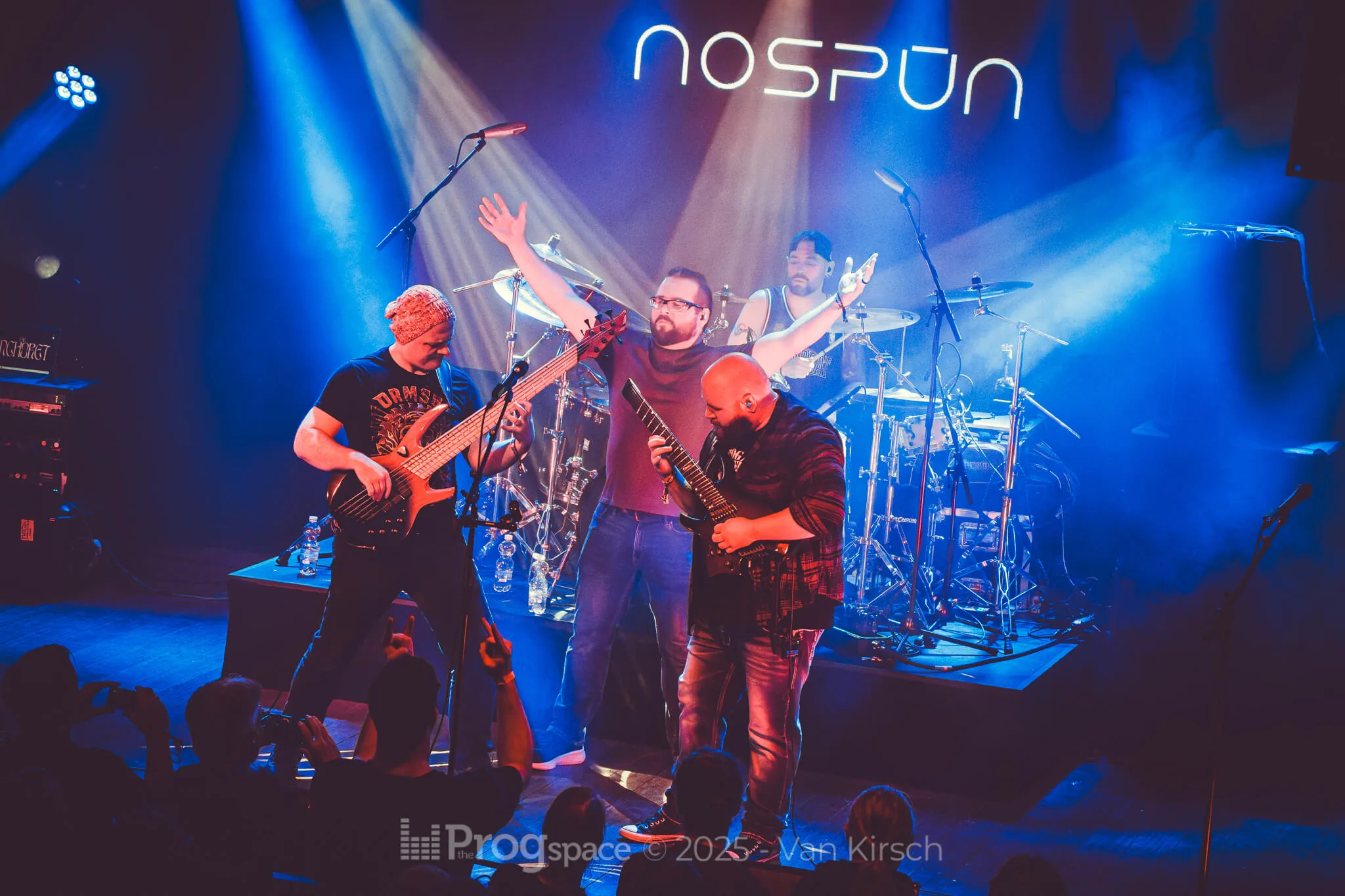
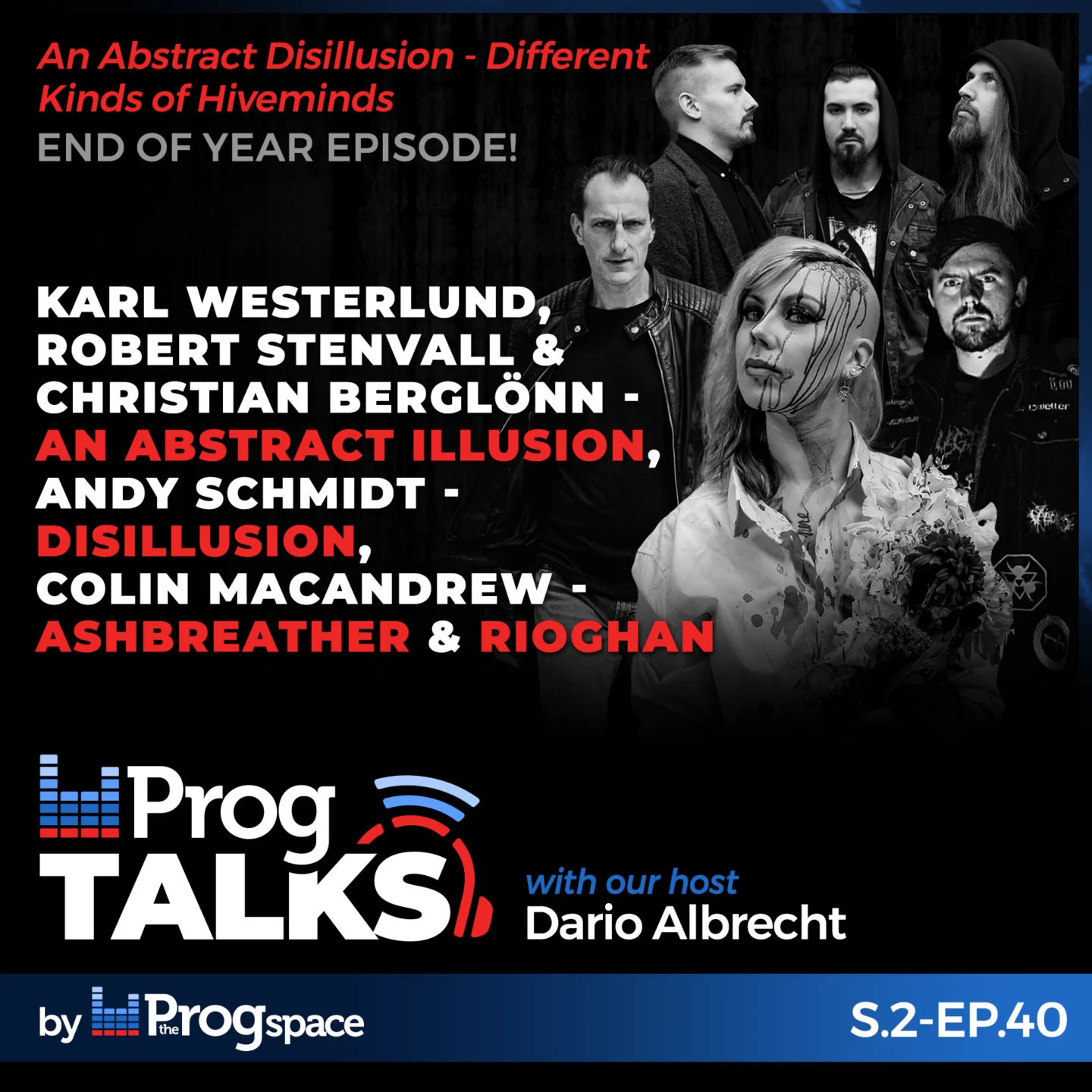
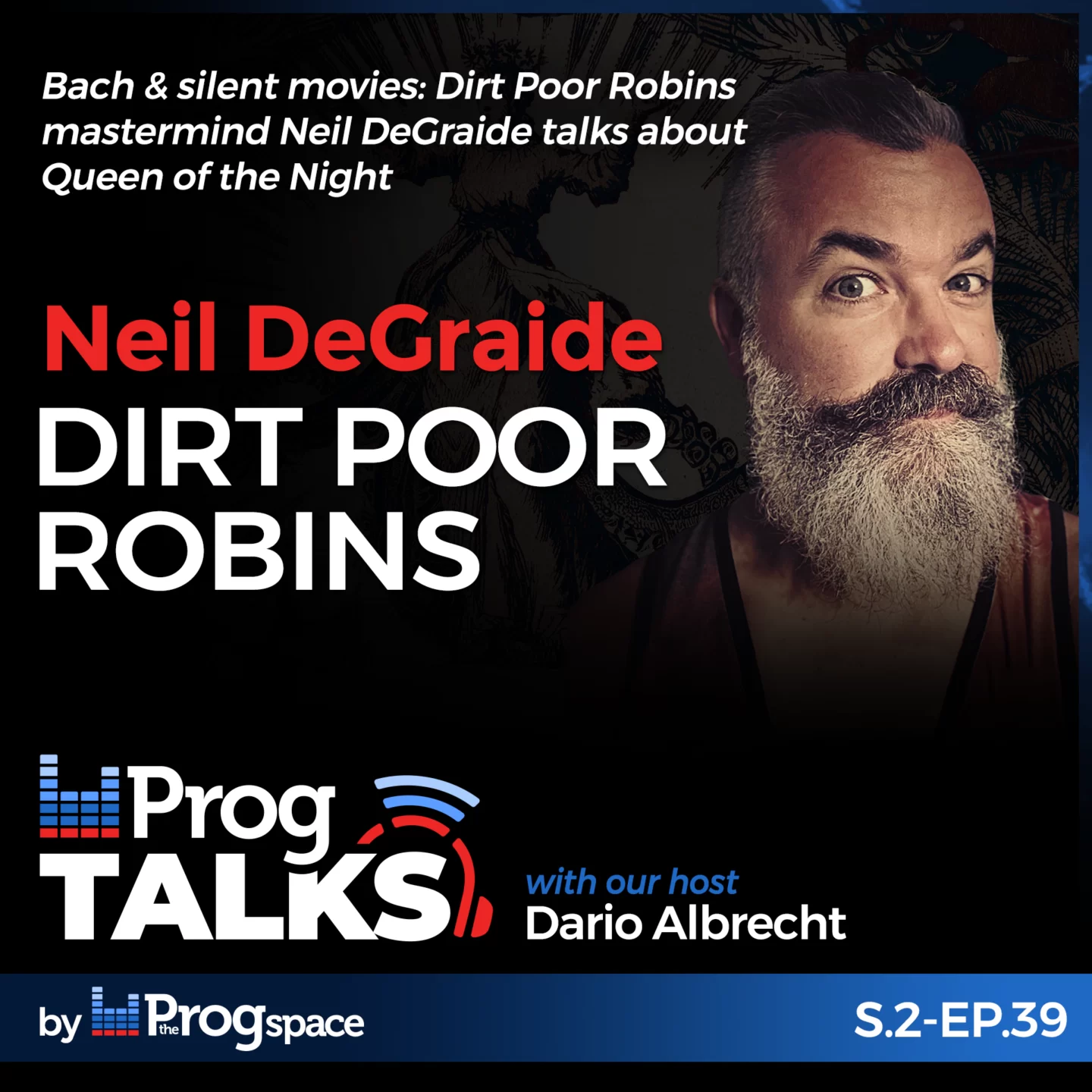
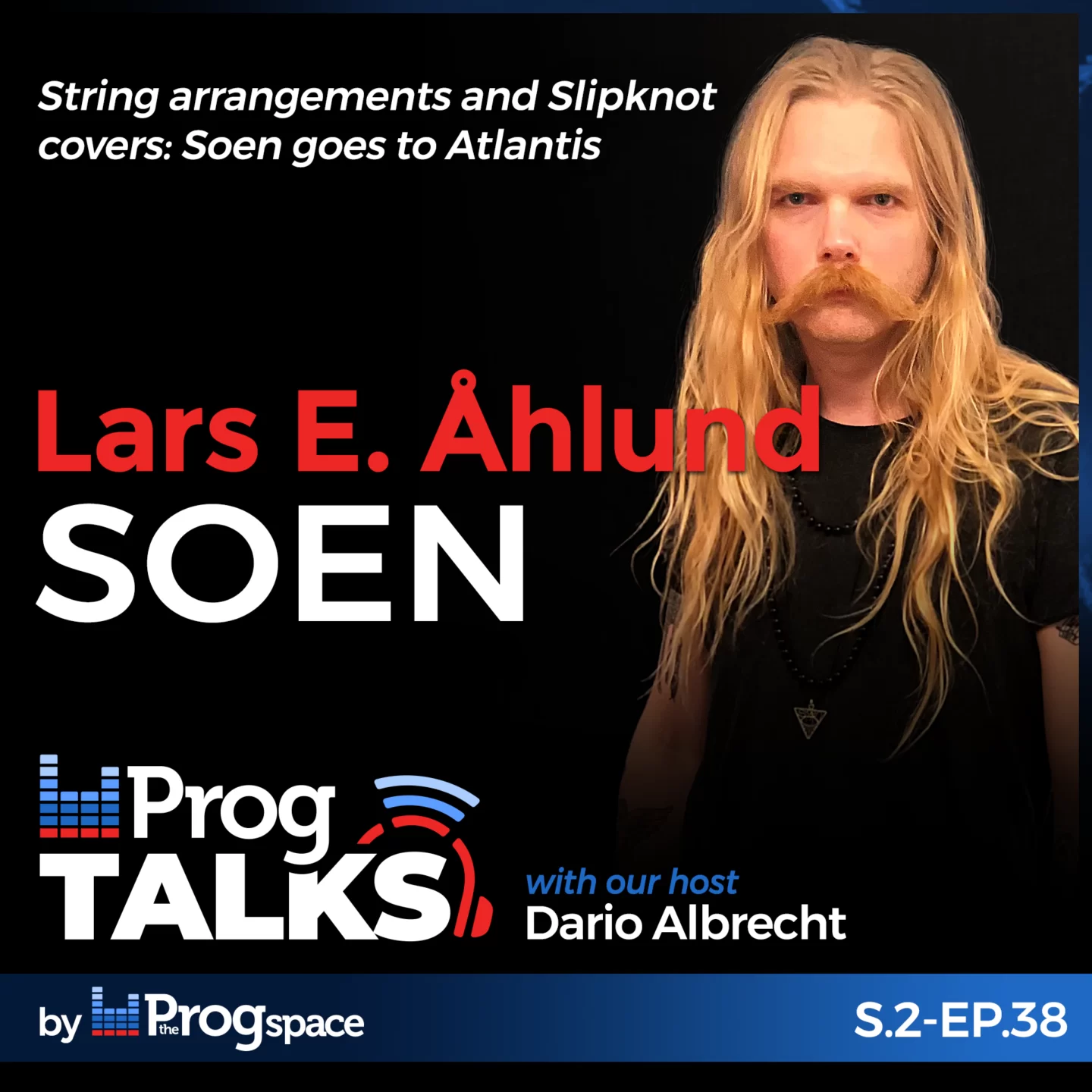
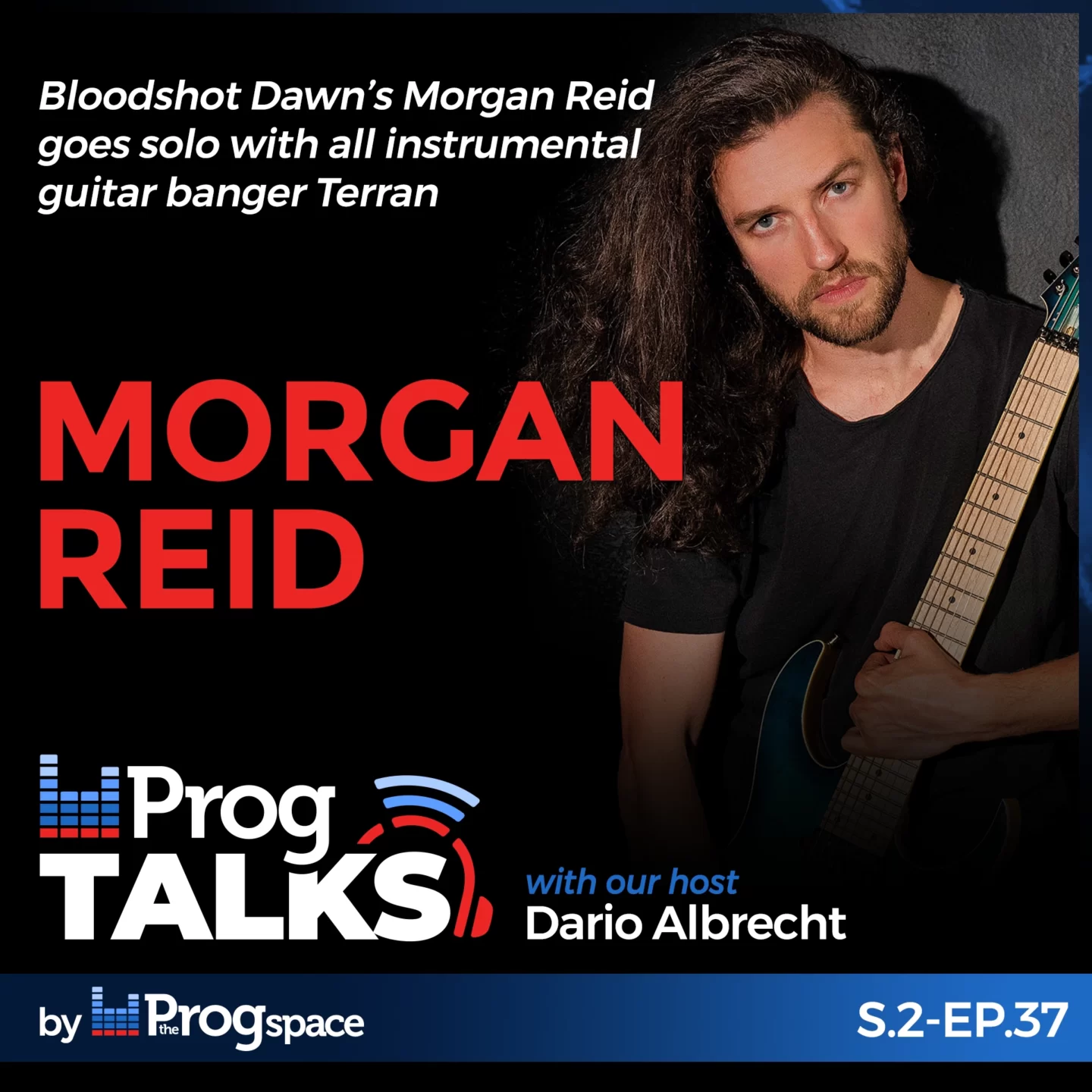


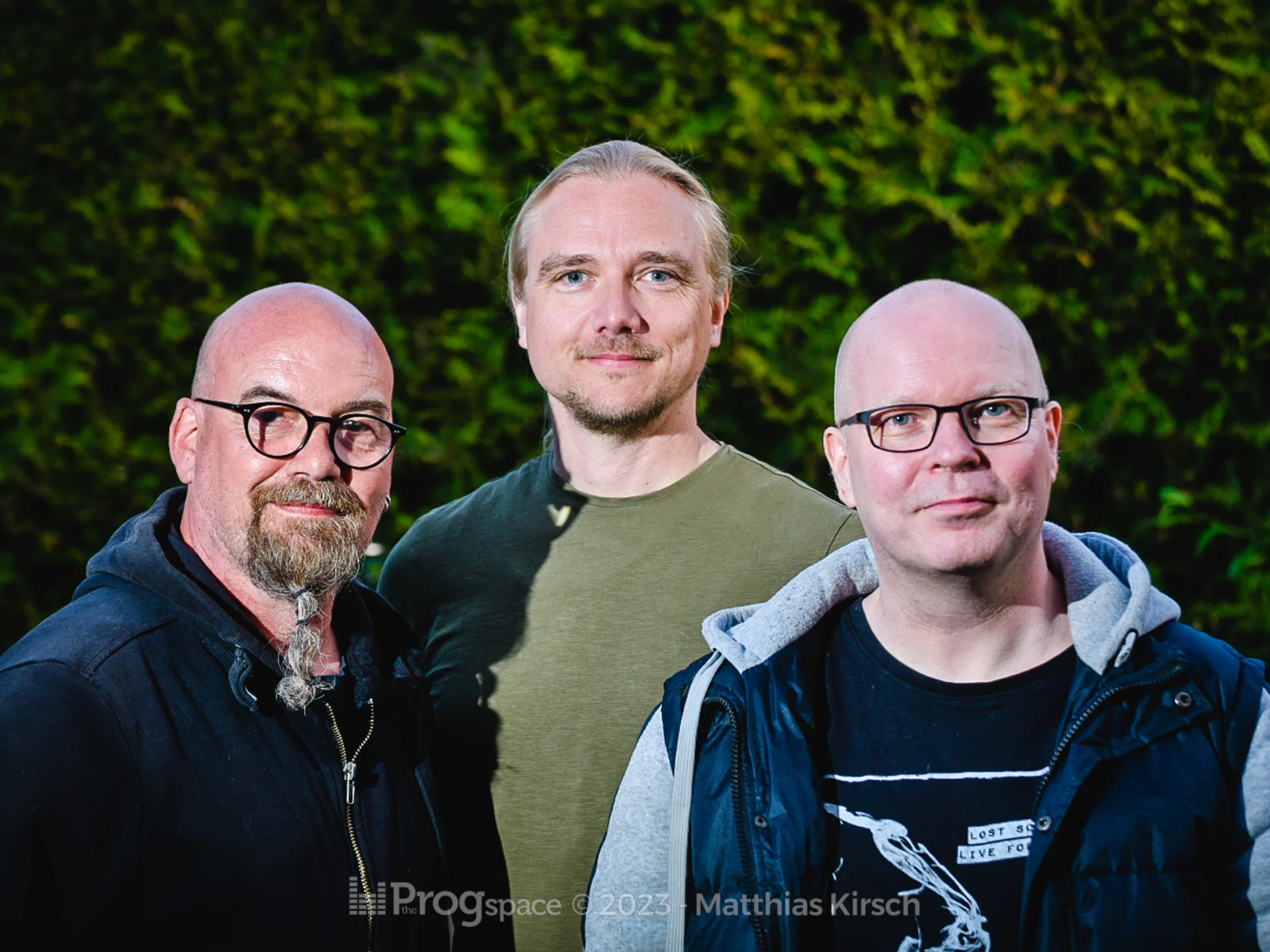
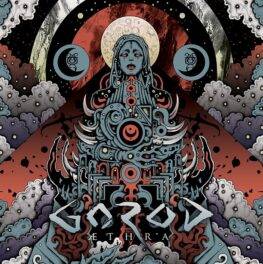
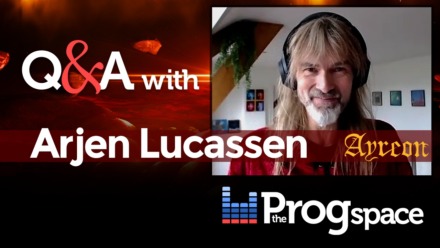
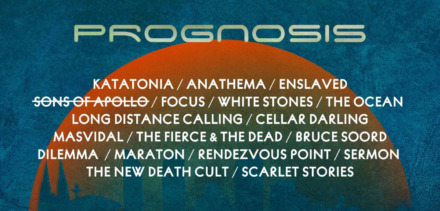


 We’re a group of Prog-lovers who started a journey to share with you our thoughts about albums, concerts, tours and festivals, the photo galleries of the Prog concerts we visit, as well interviews with upcoming or established musicians or prog-related people. Follow our Facebook page for frequent updates and news around the Progniverse.
We’re a group of Prog-lovers who started a journey to share with you our thoughts about albums, concerts, tours and festivals, the photo galleries of the Prog concerts we visit, as well interviews with upcoming or established musicians or prog-related people. Follow our Facebook page for frequent updates and news around the Progniverse.